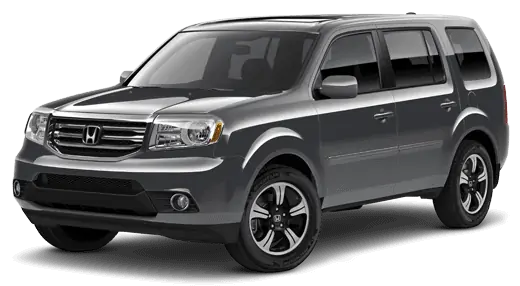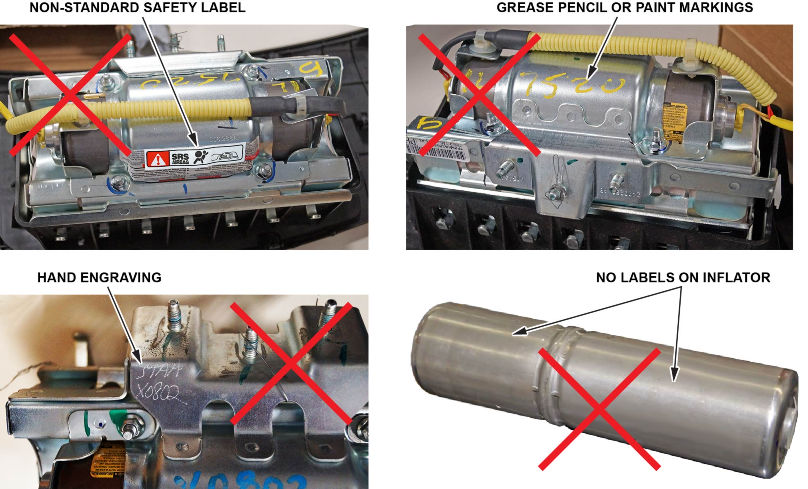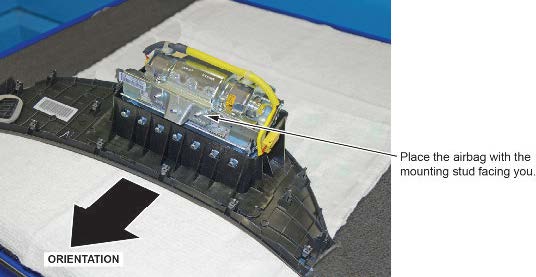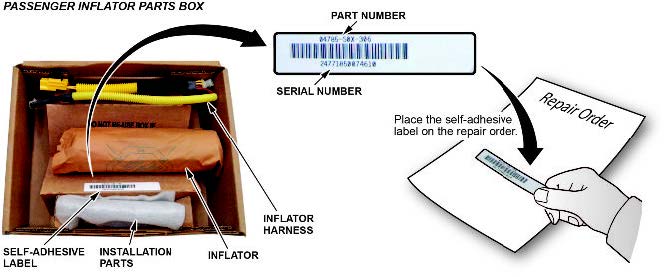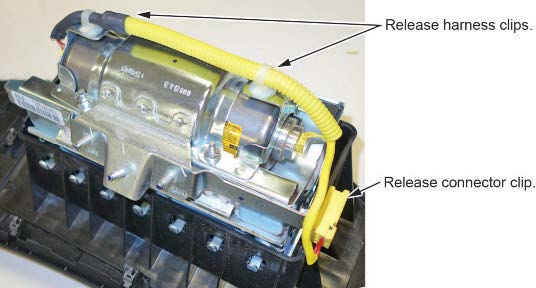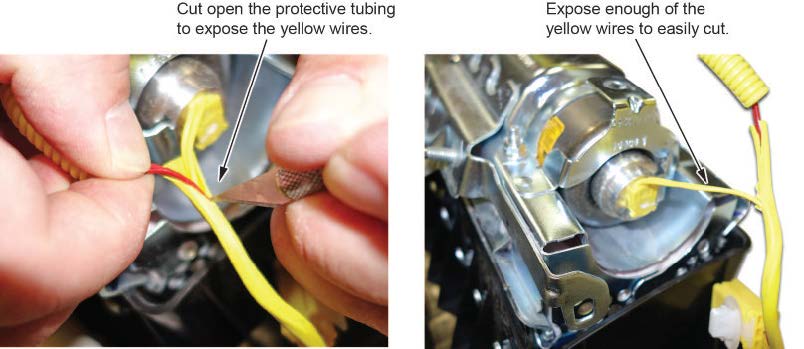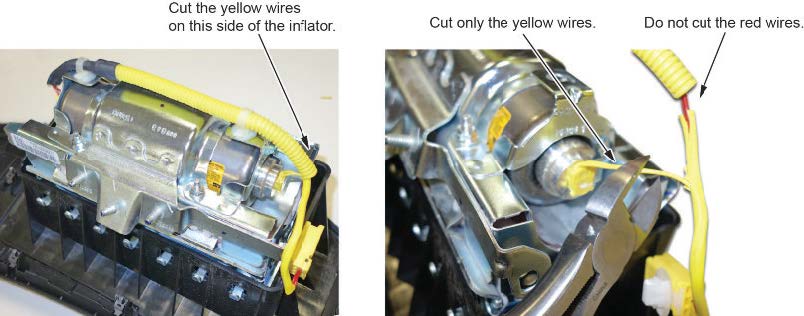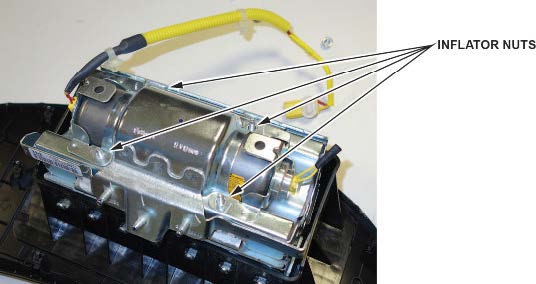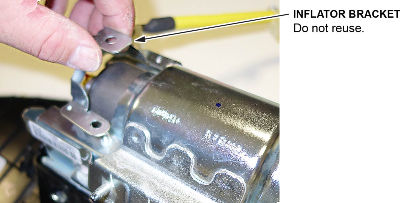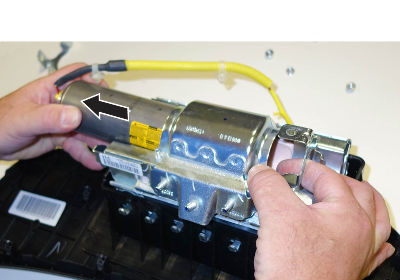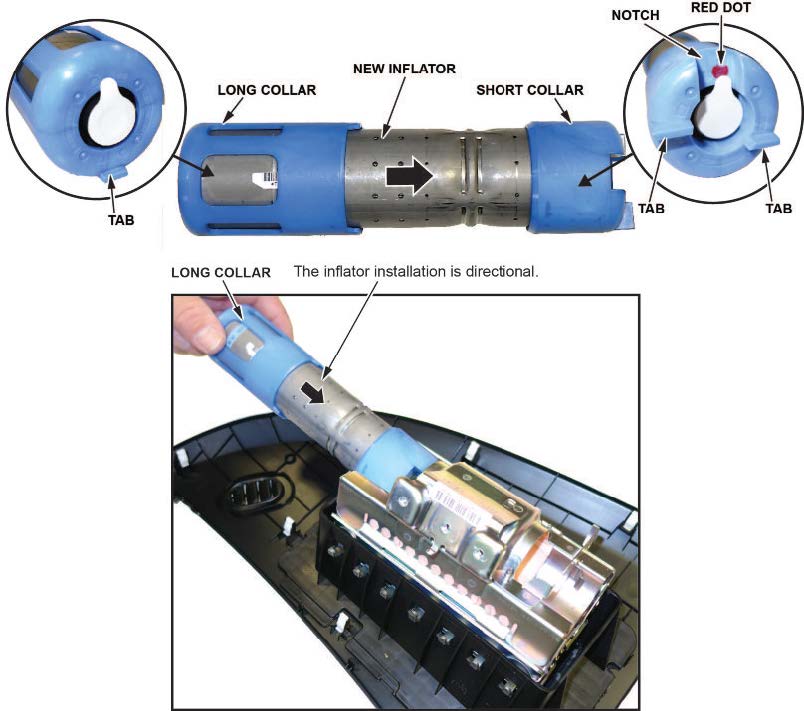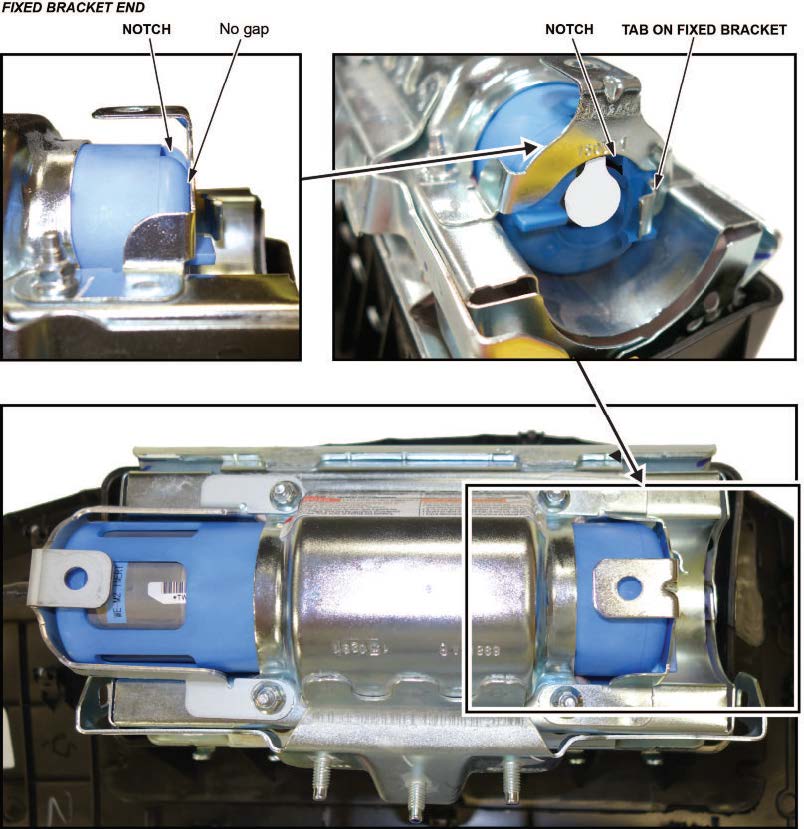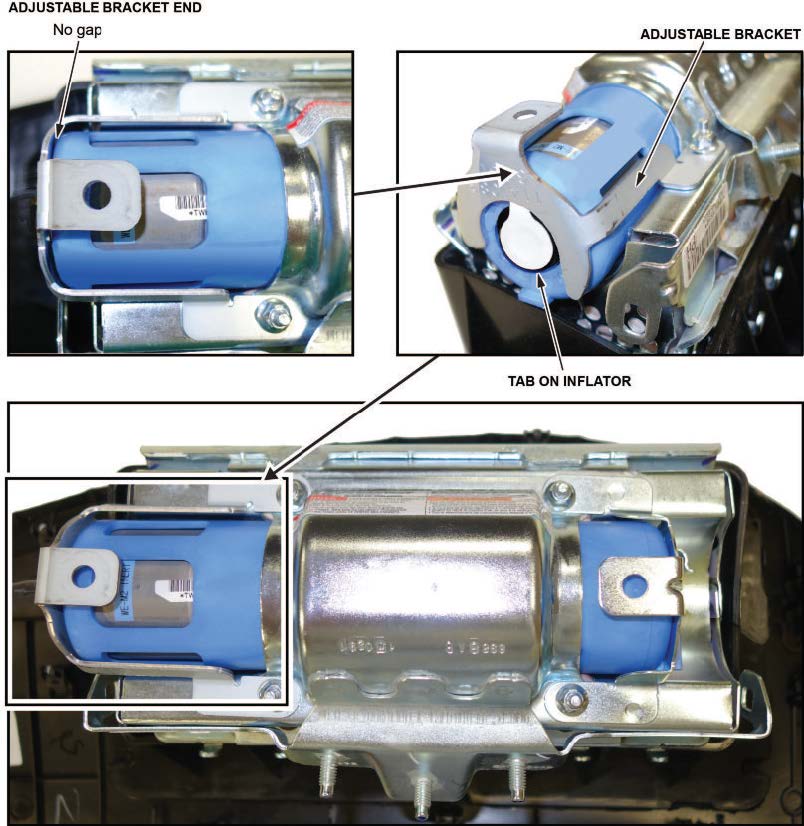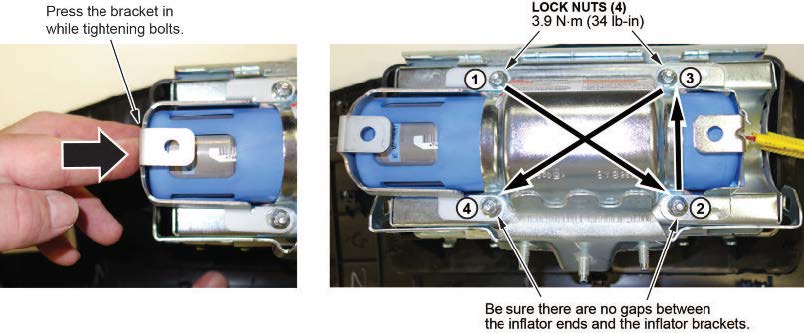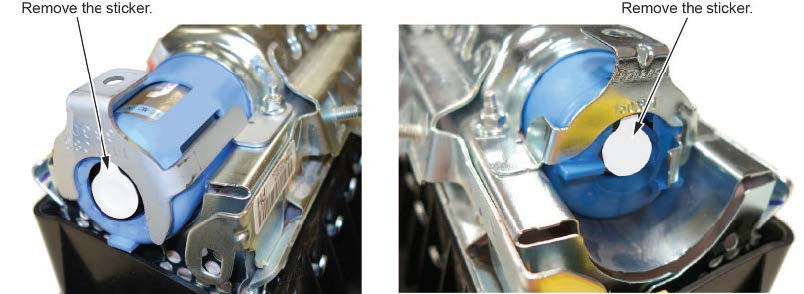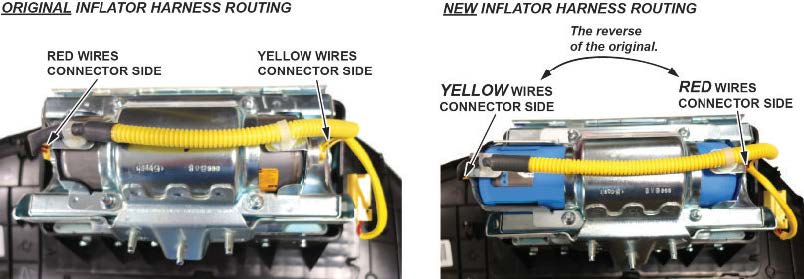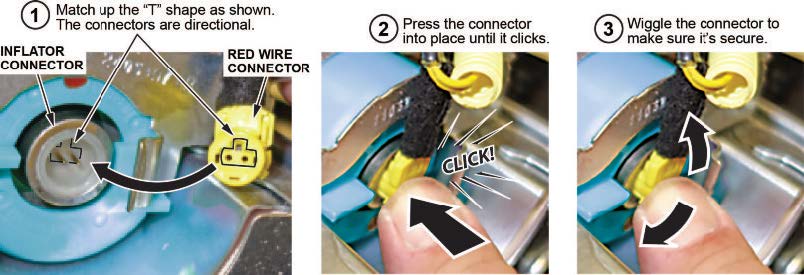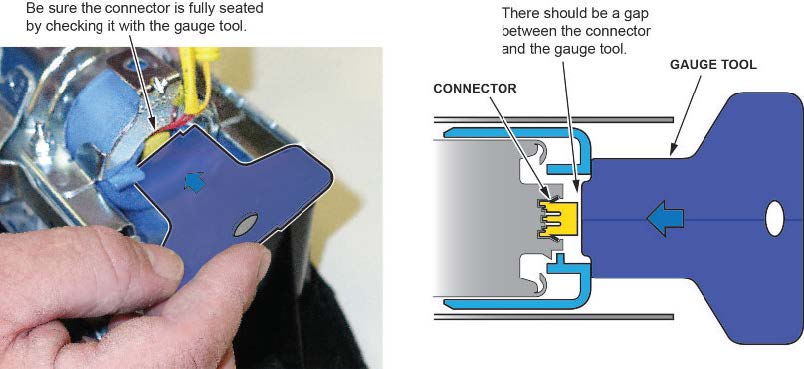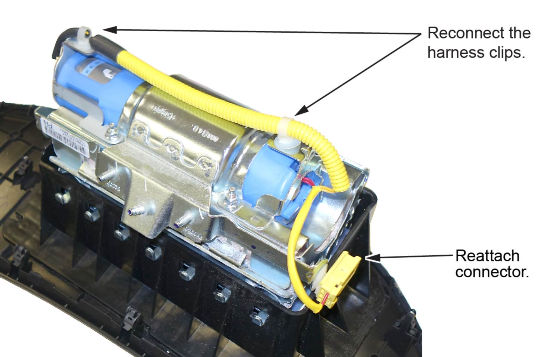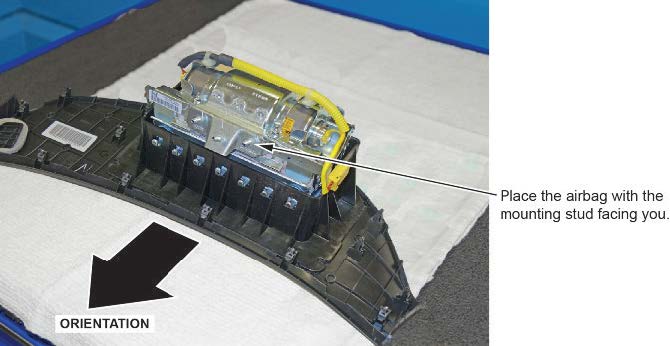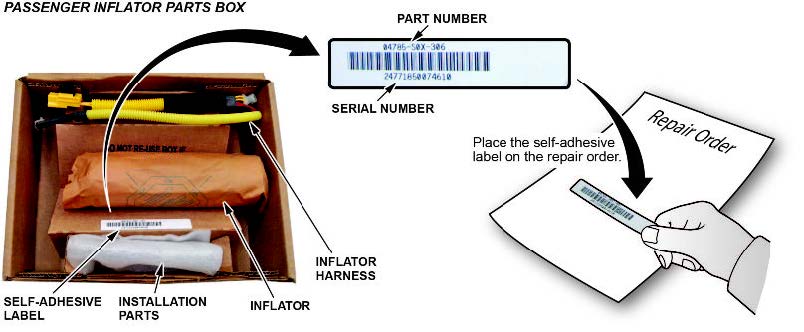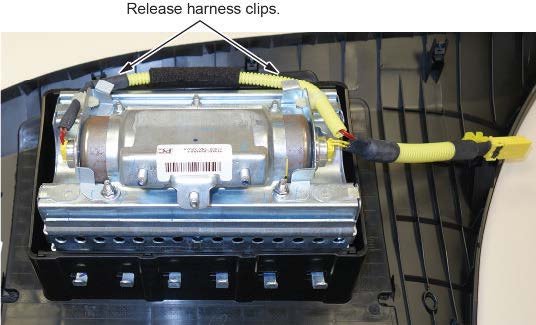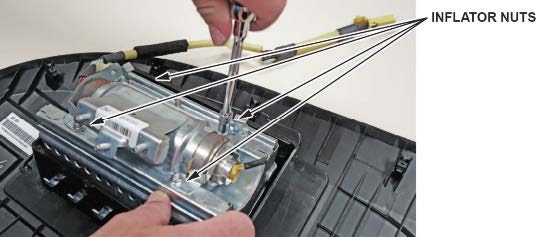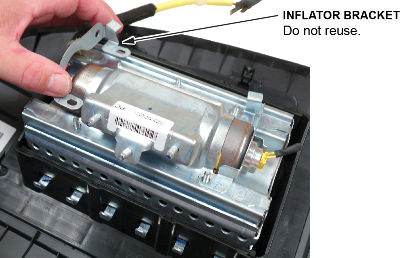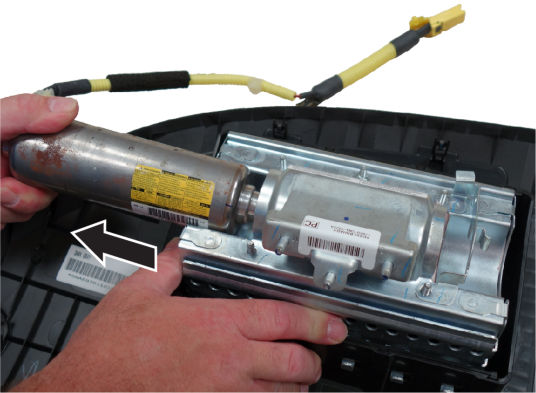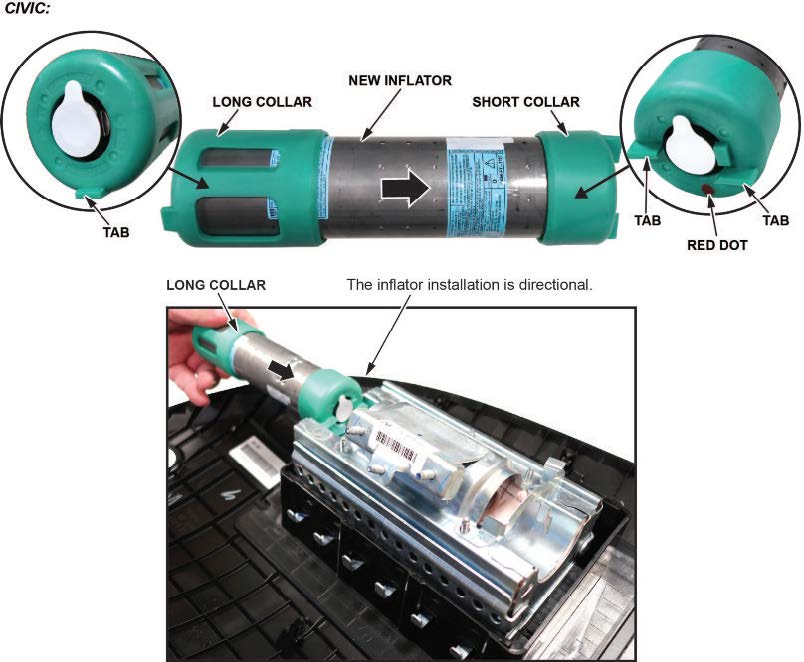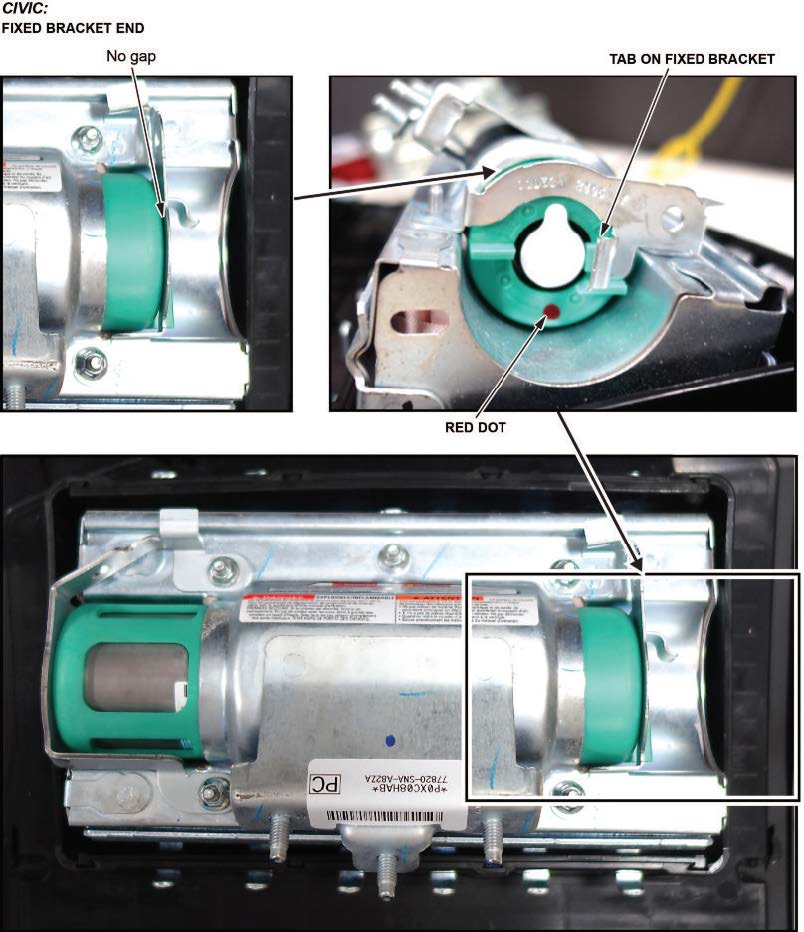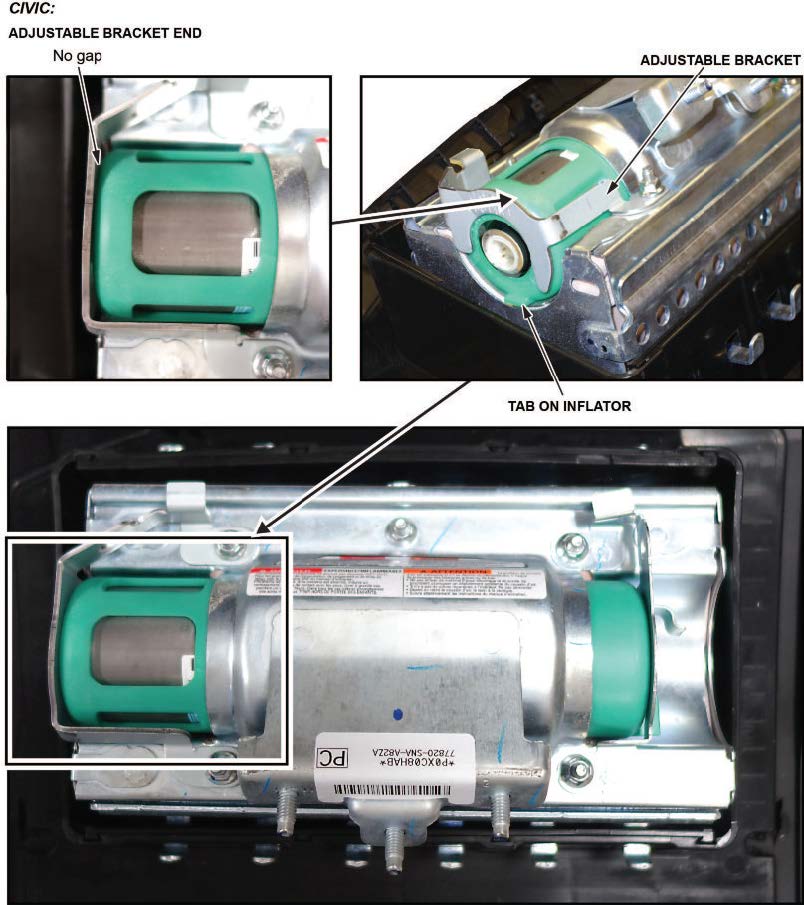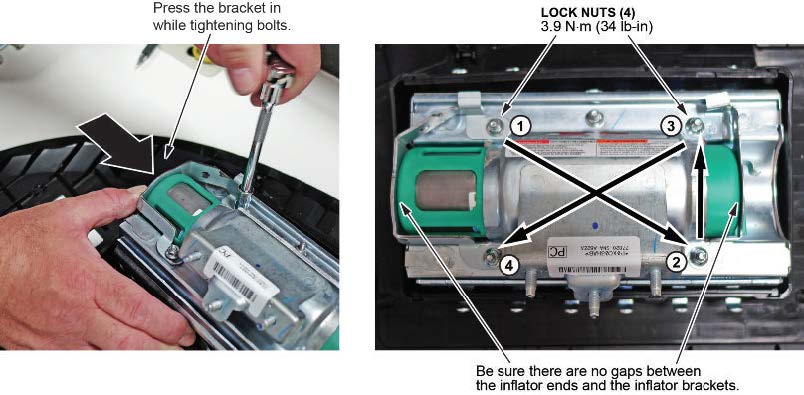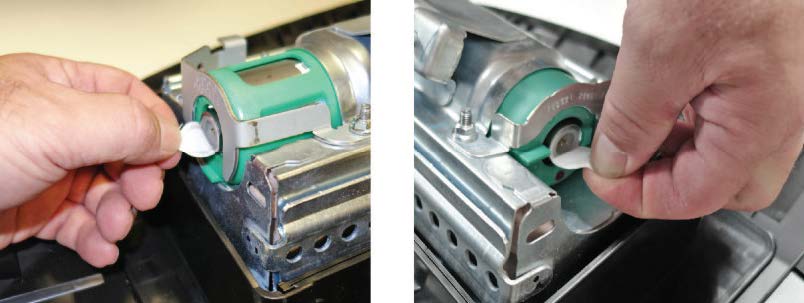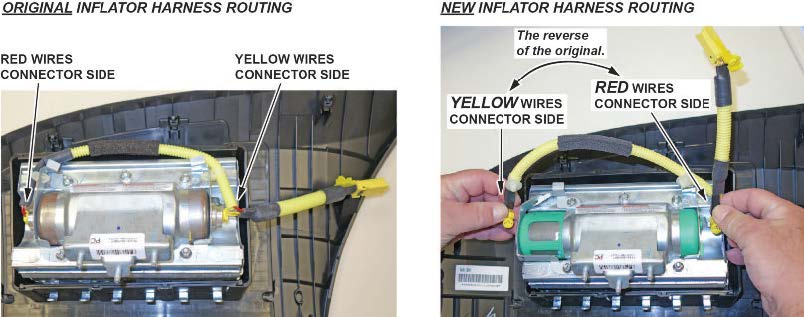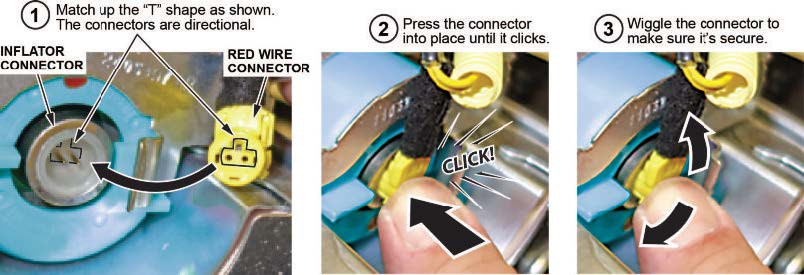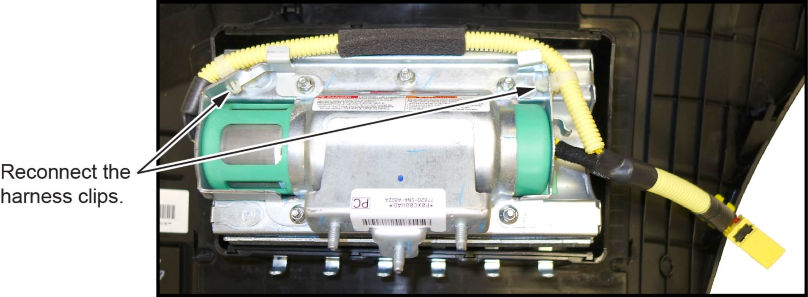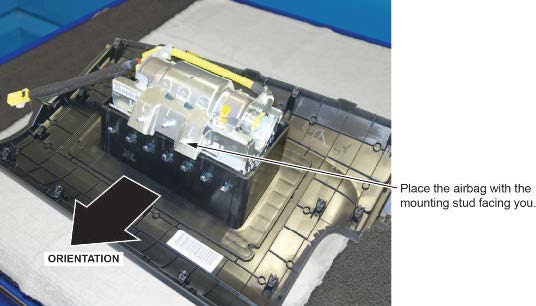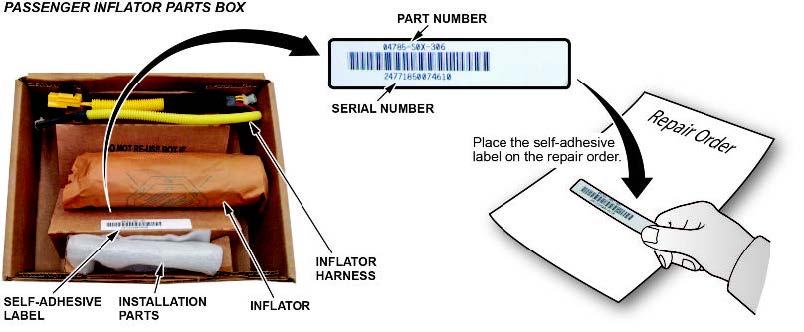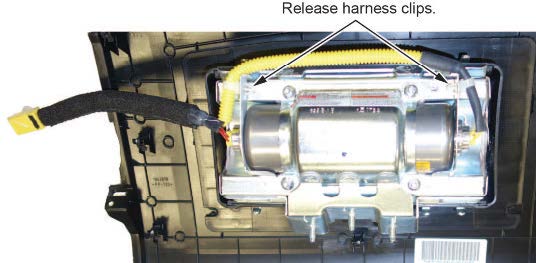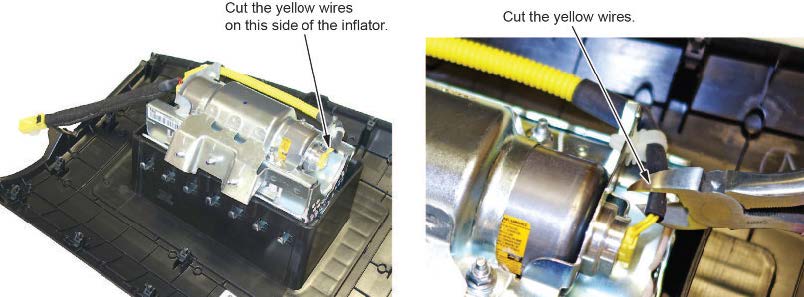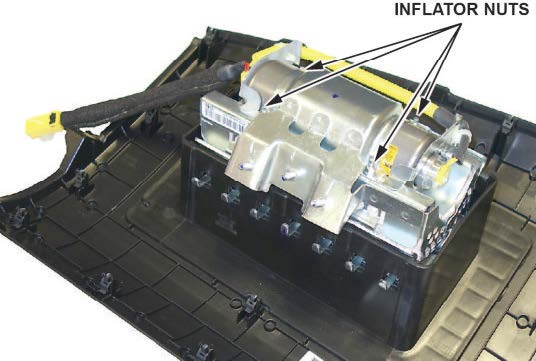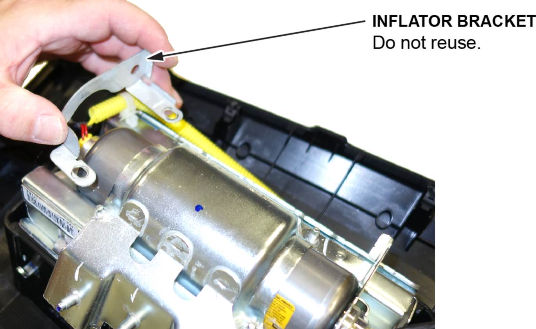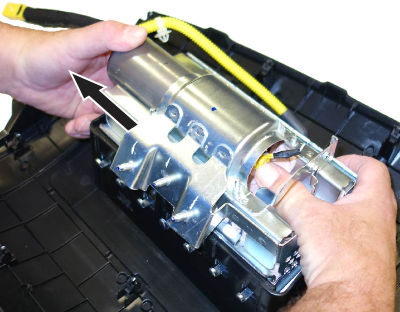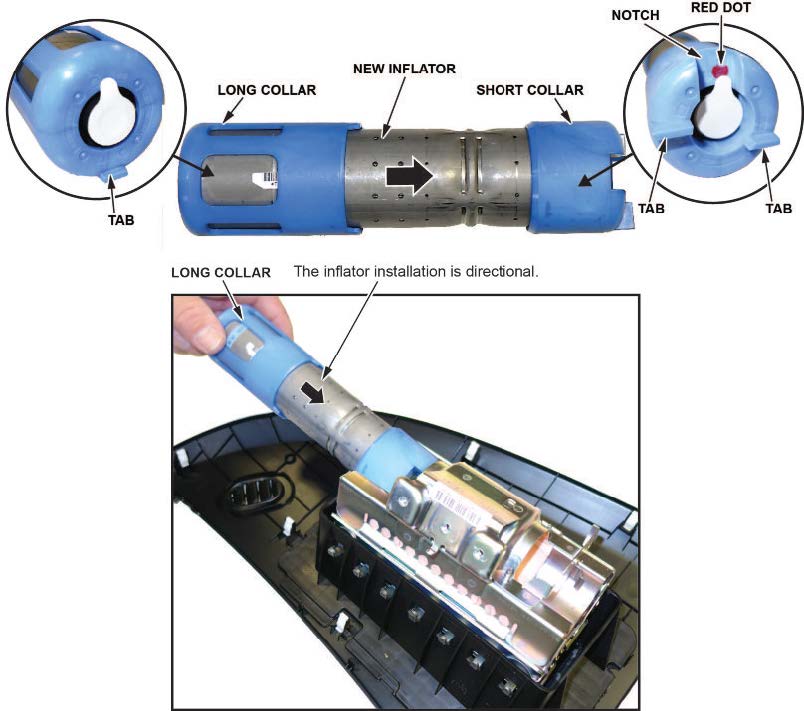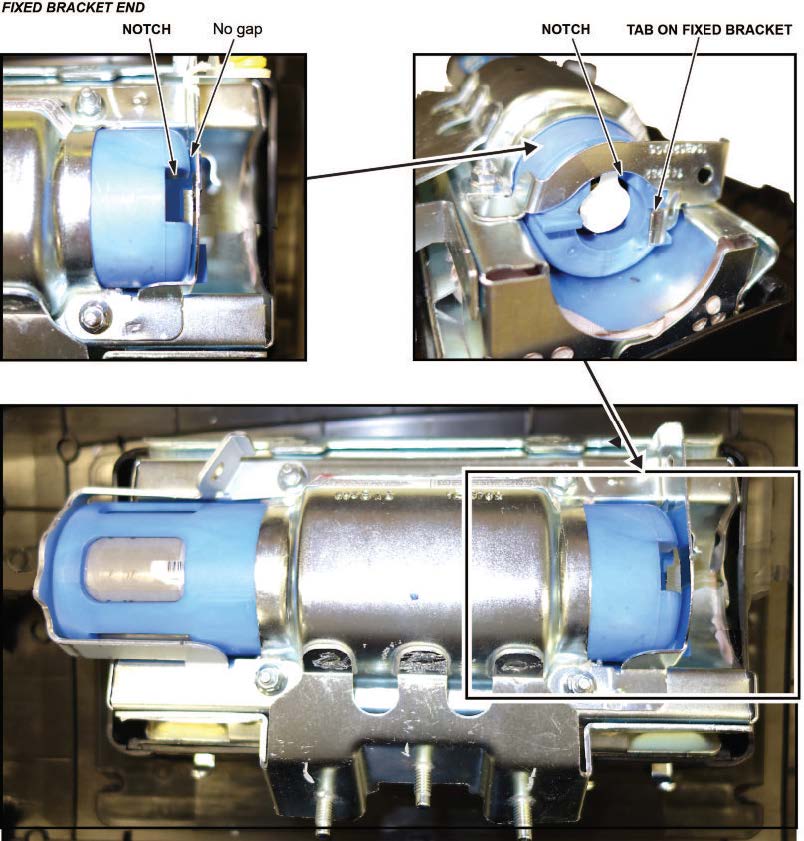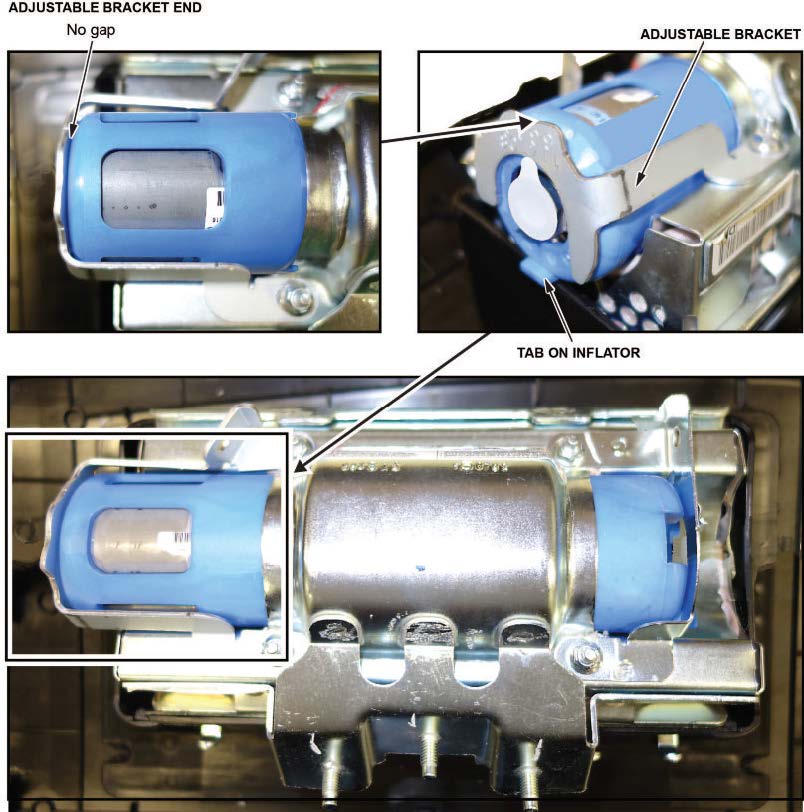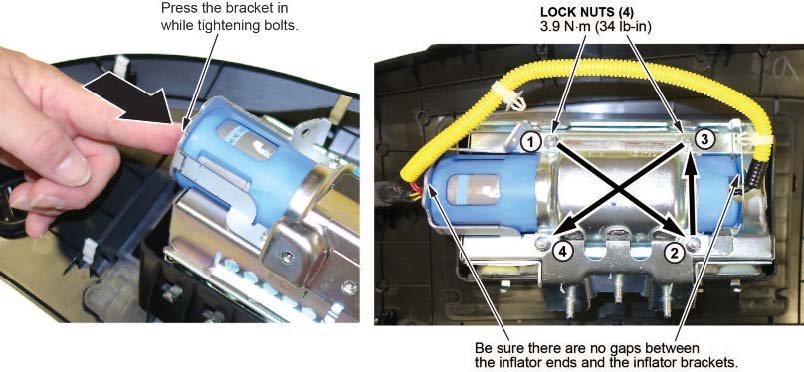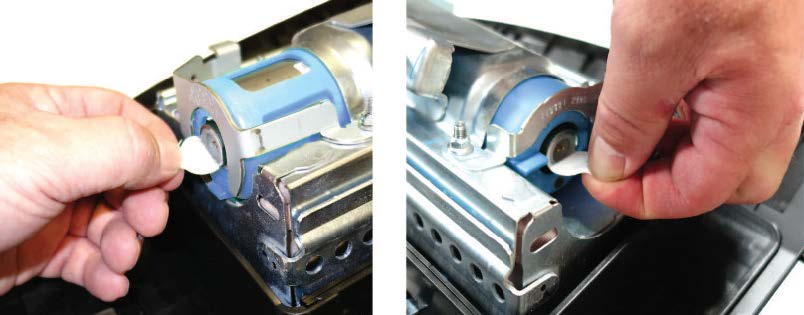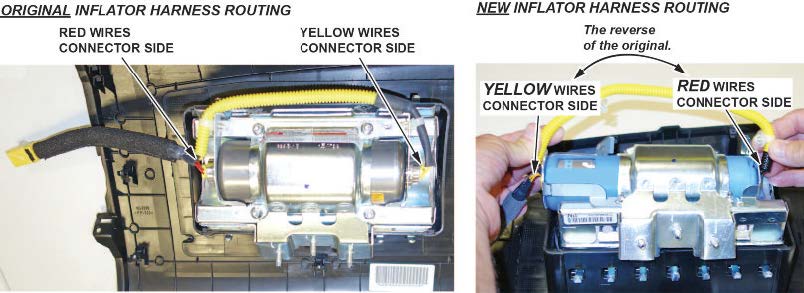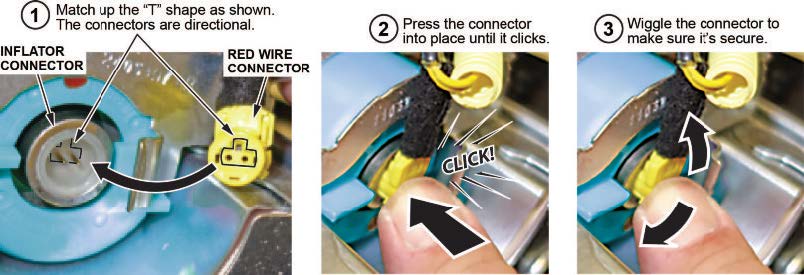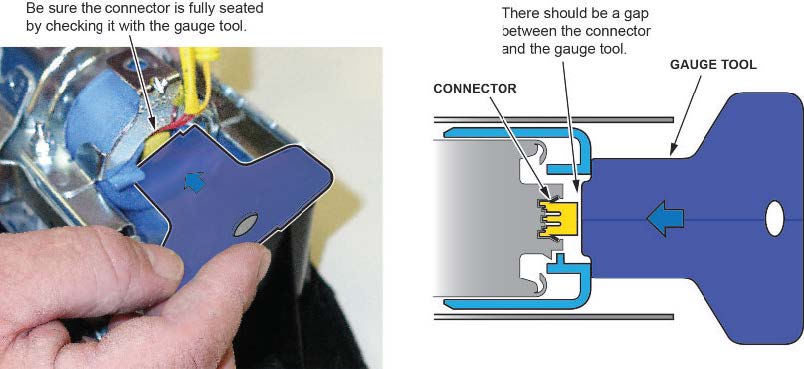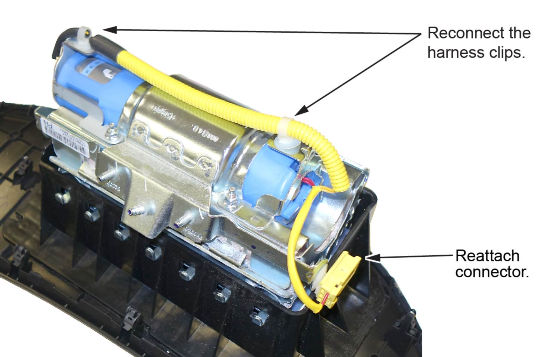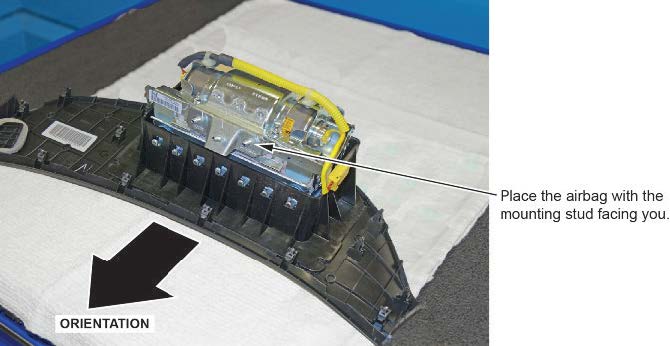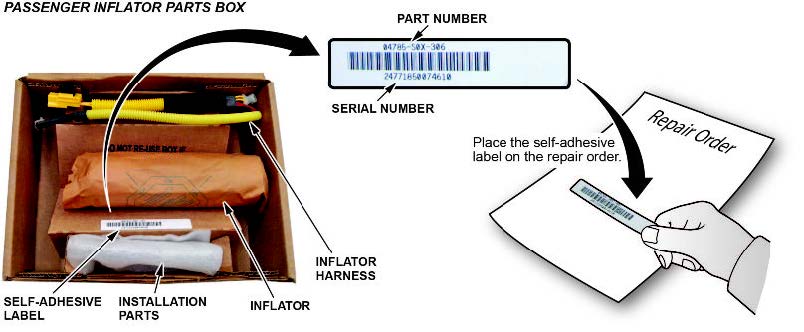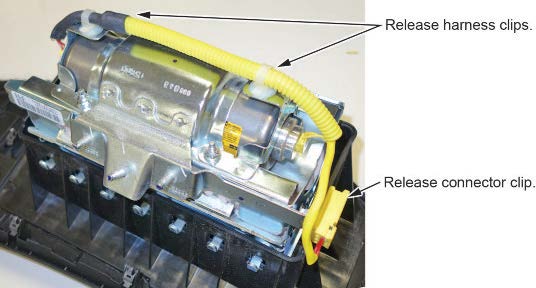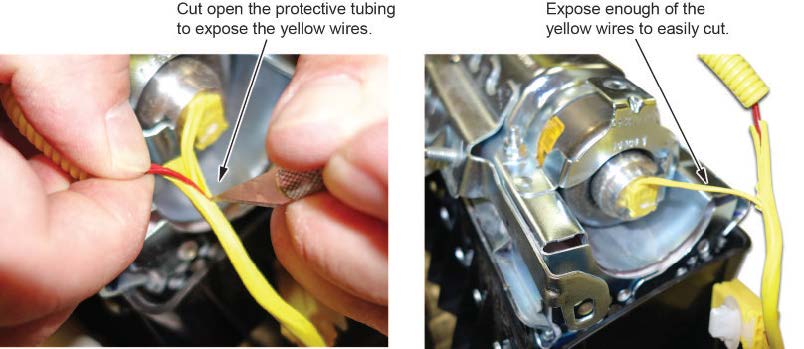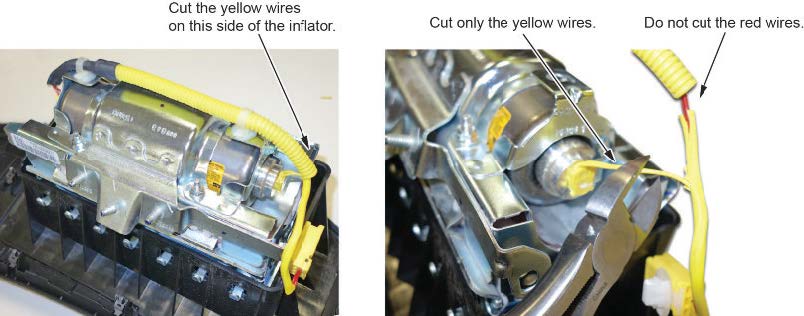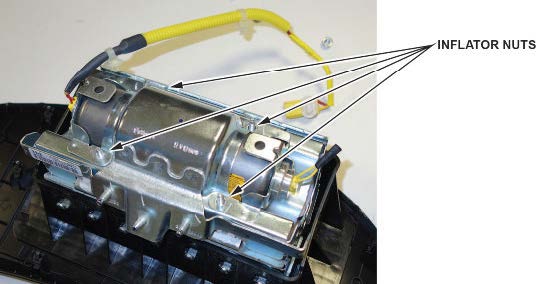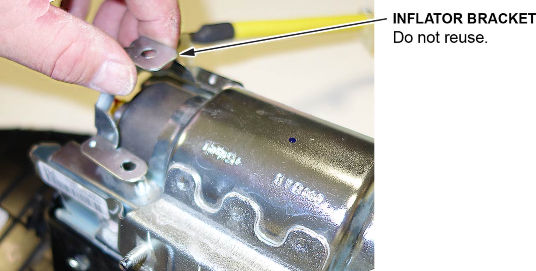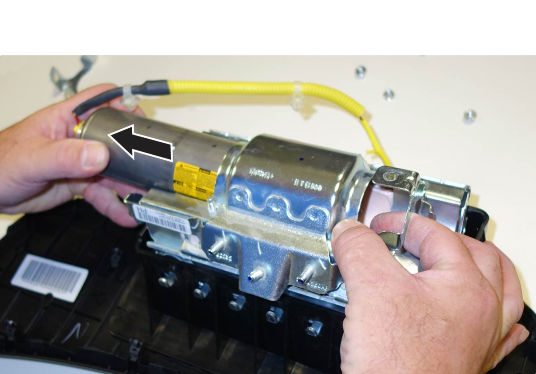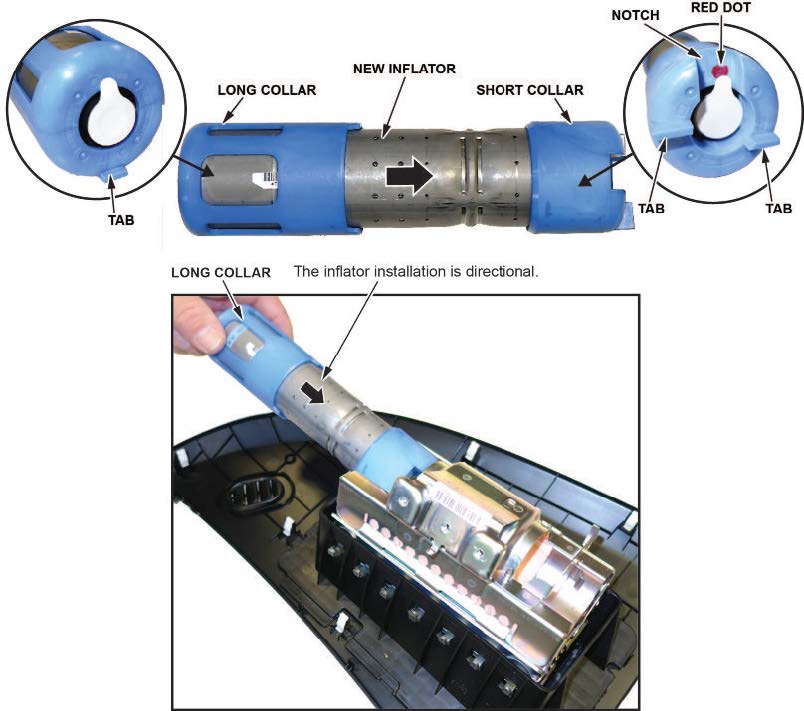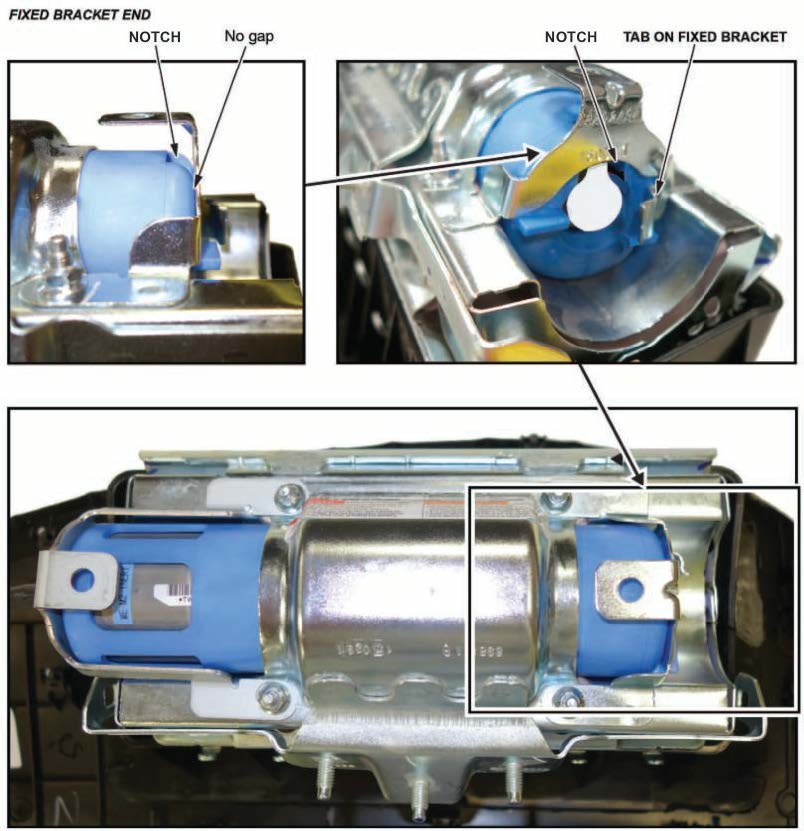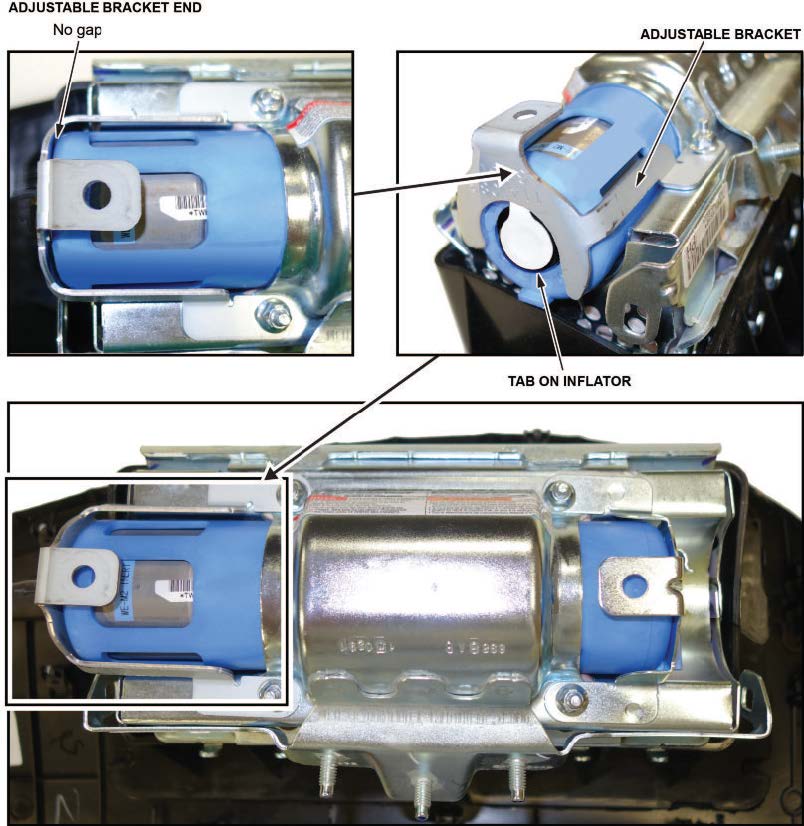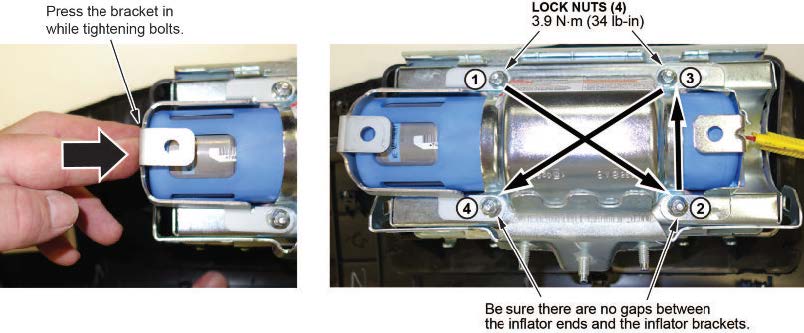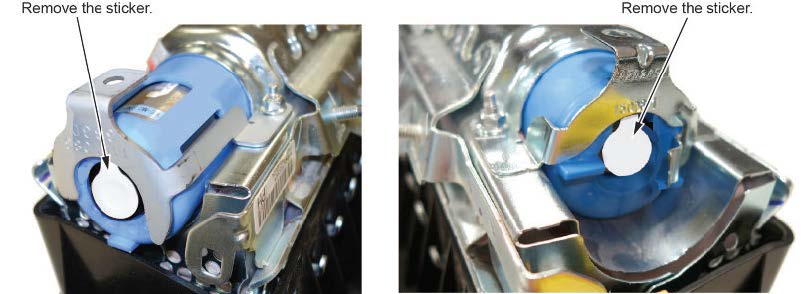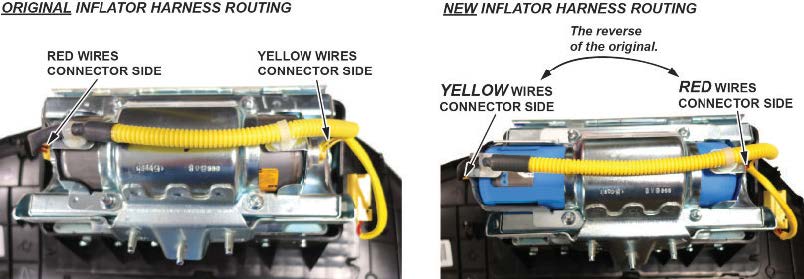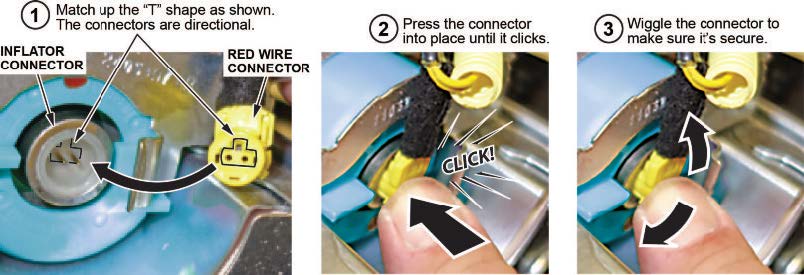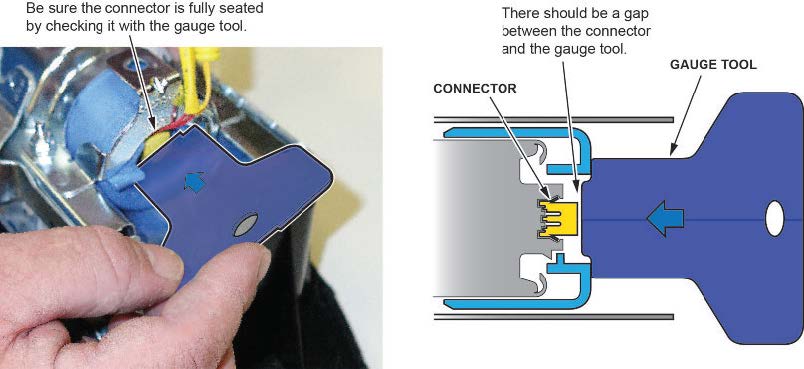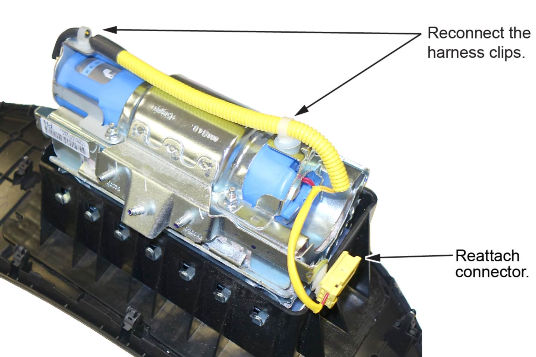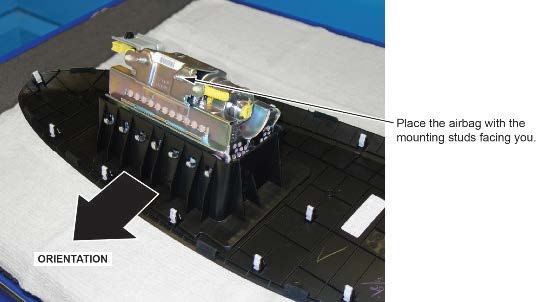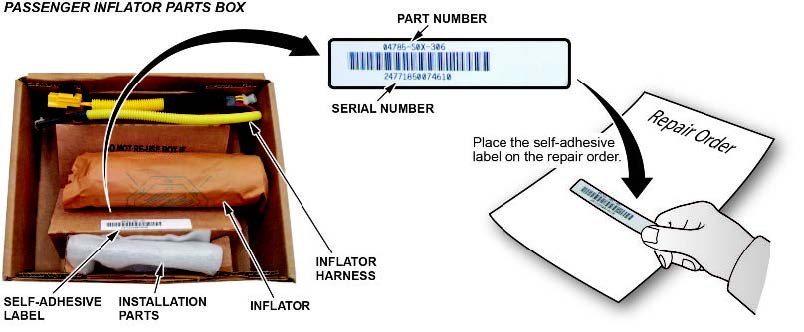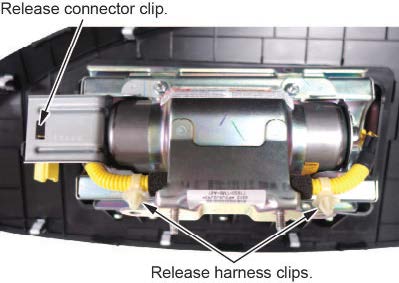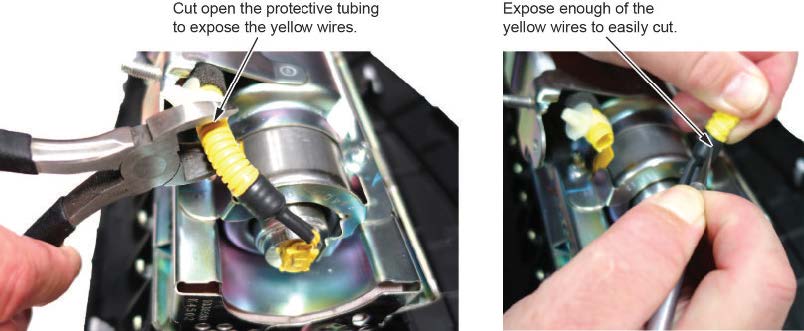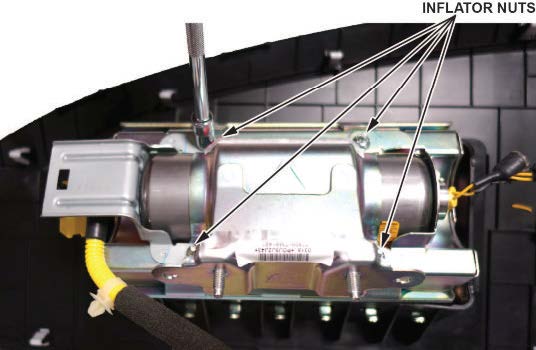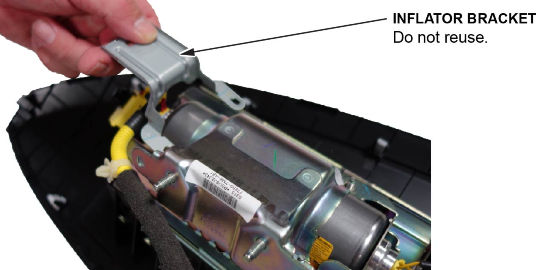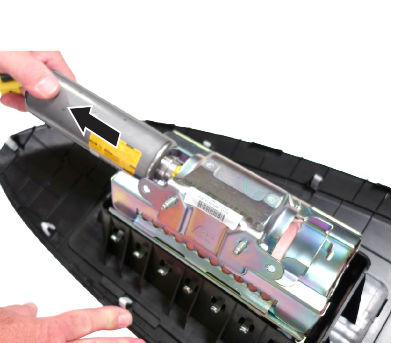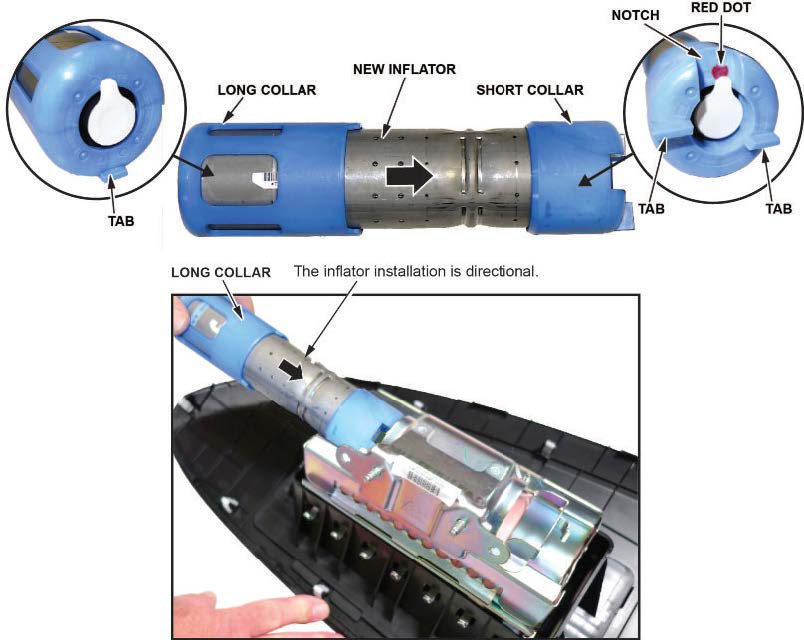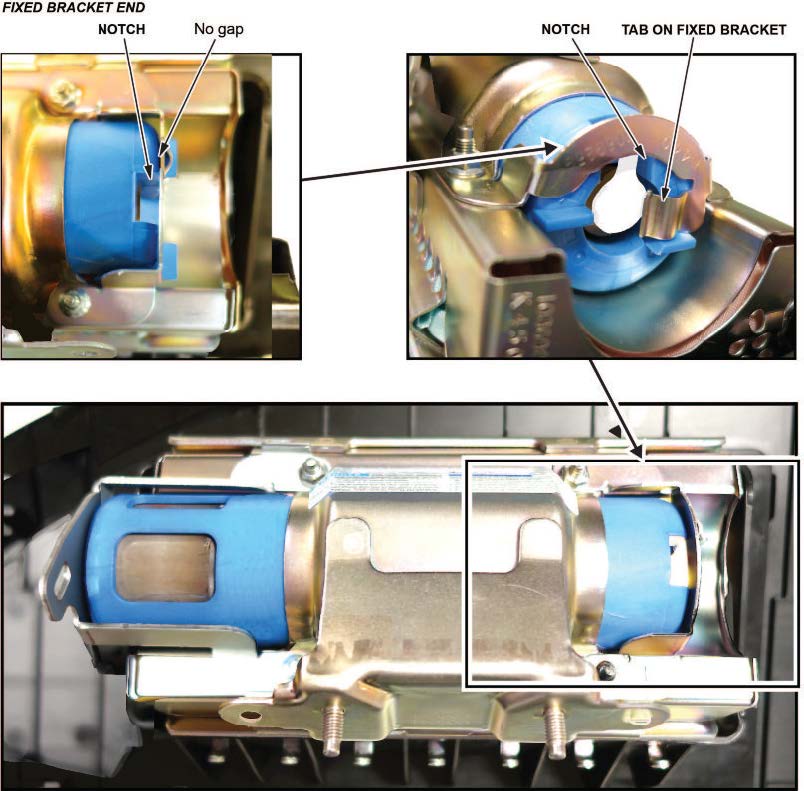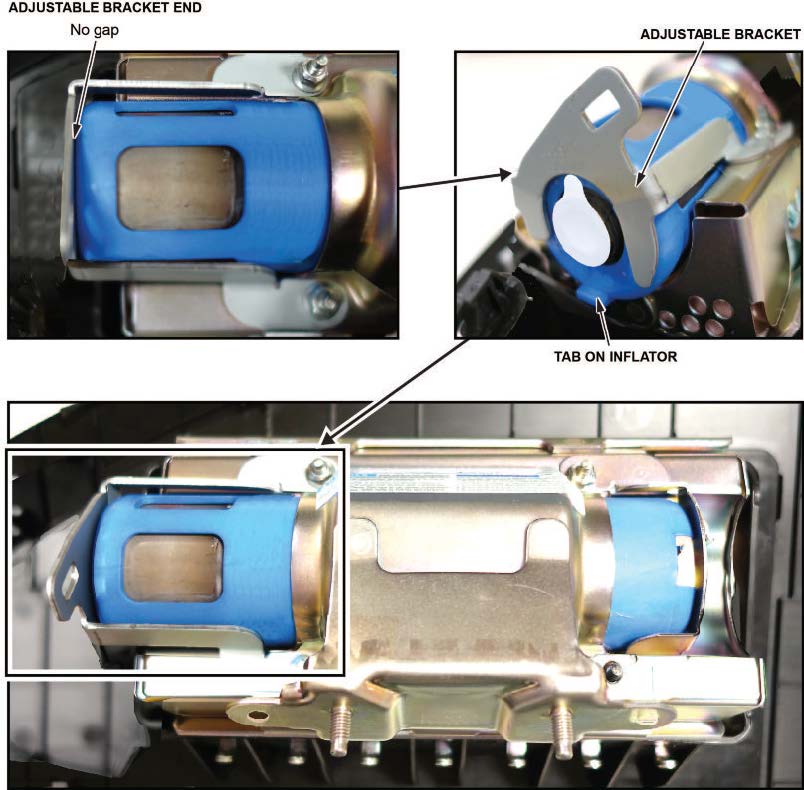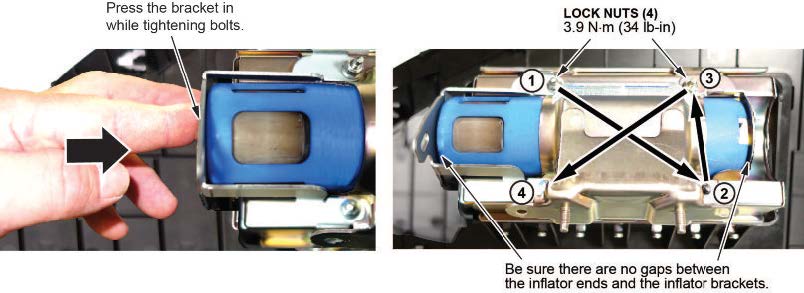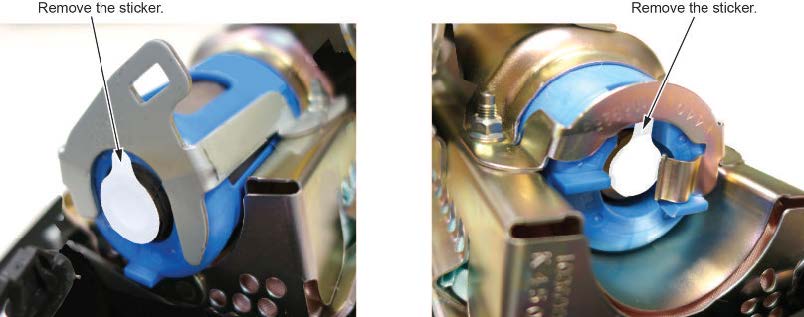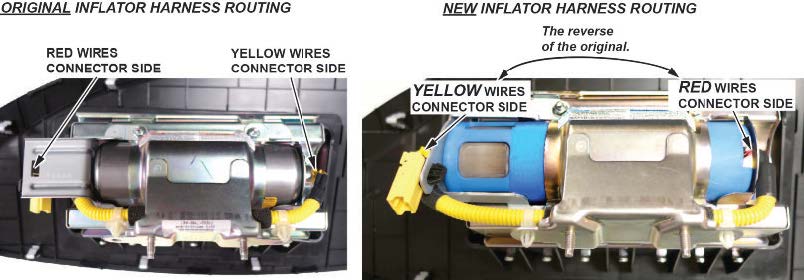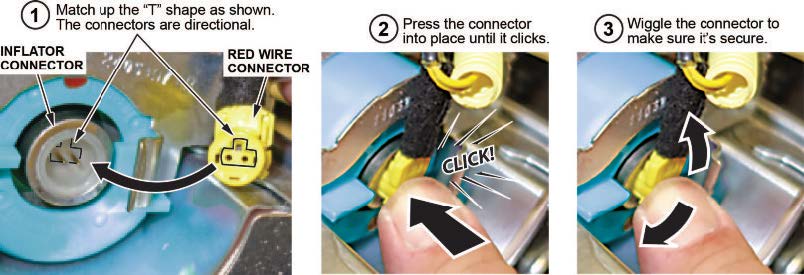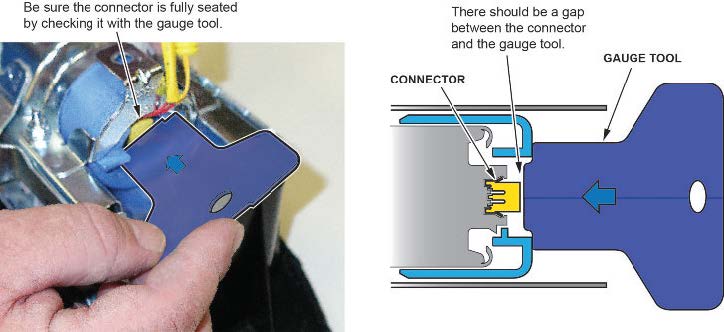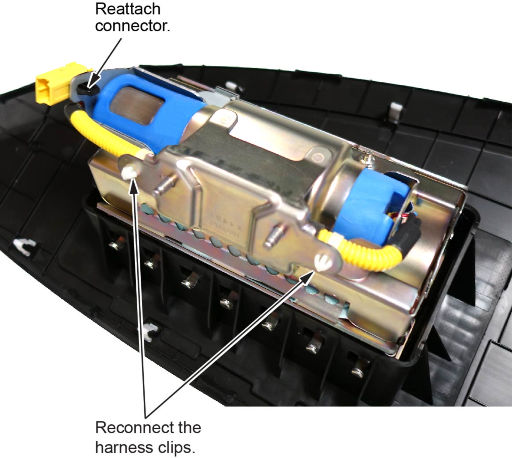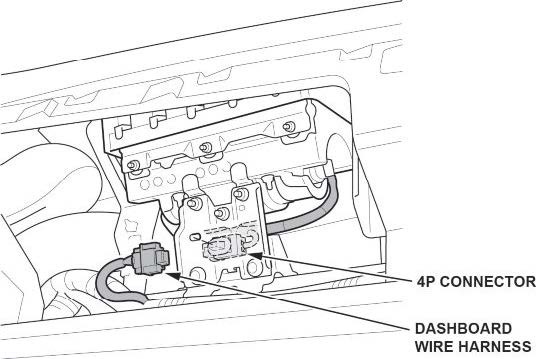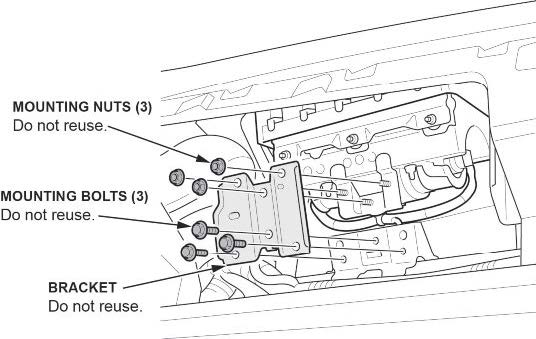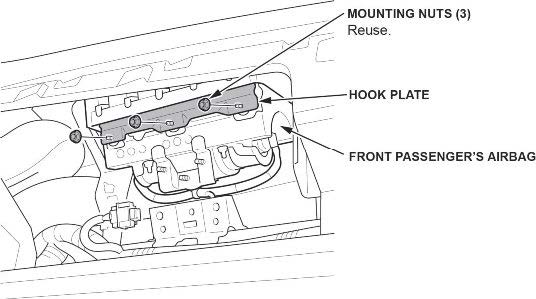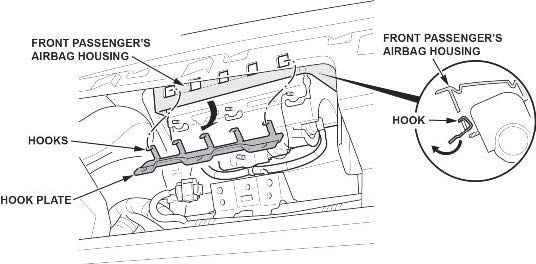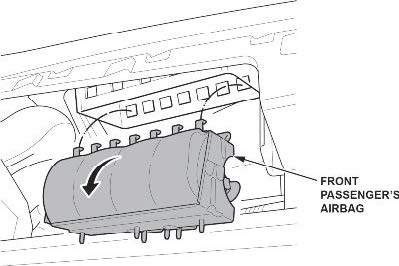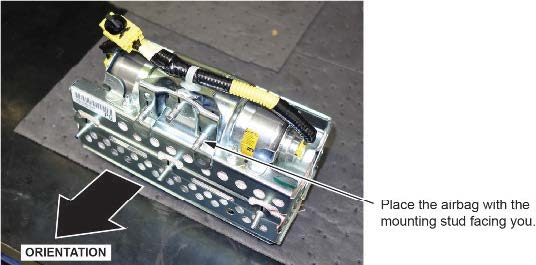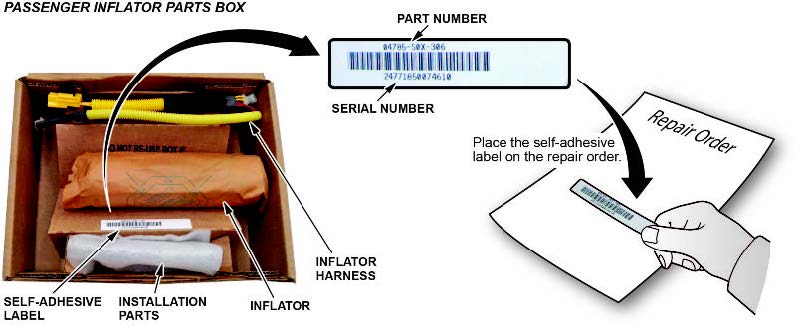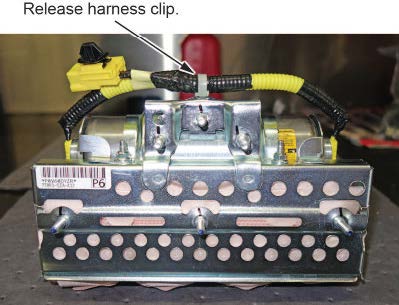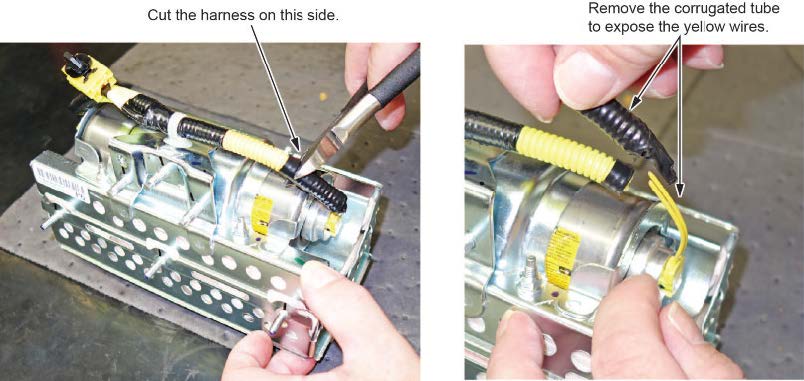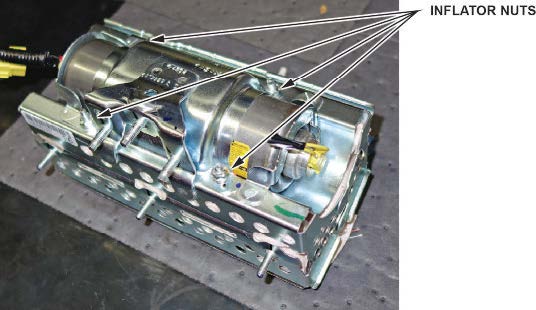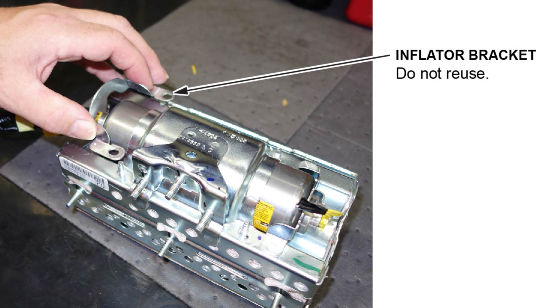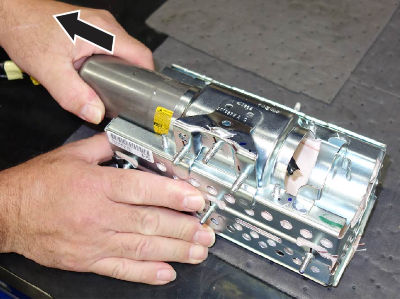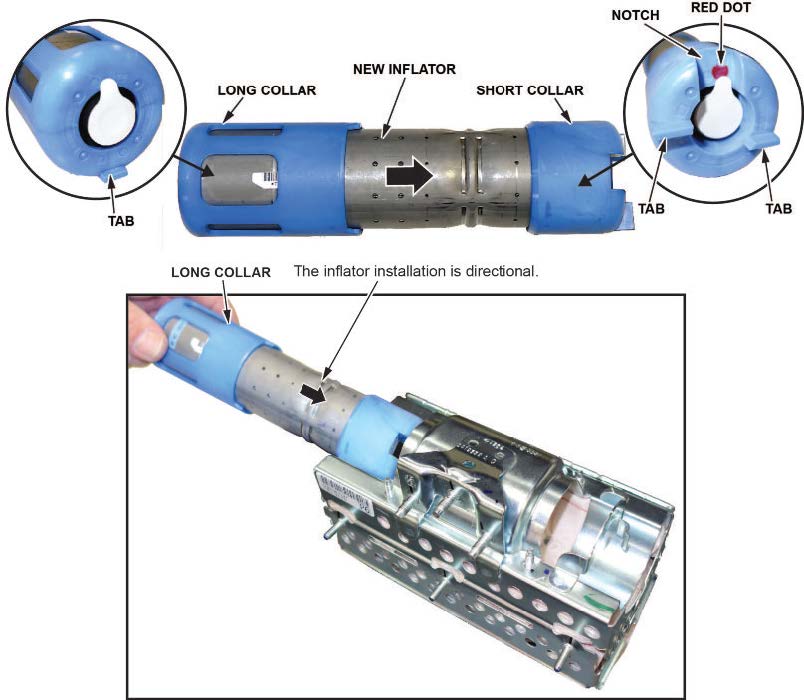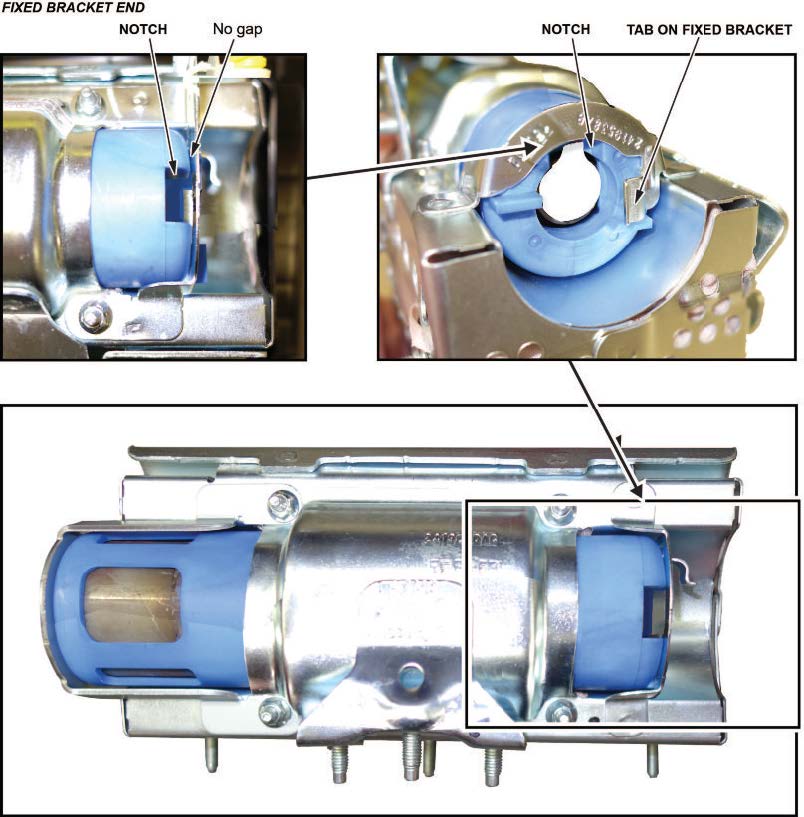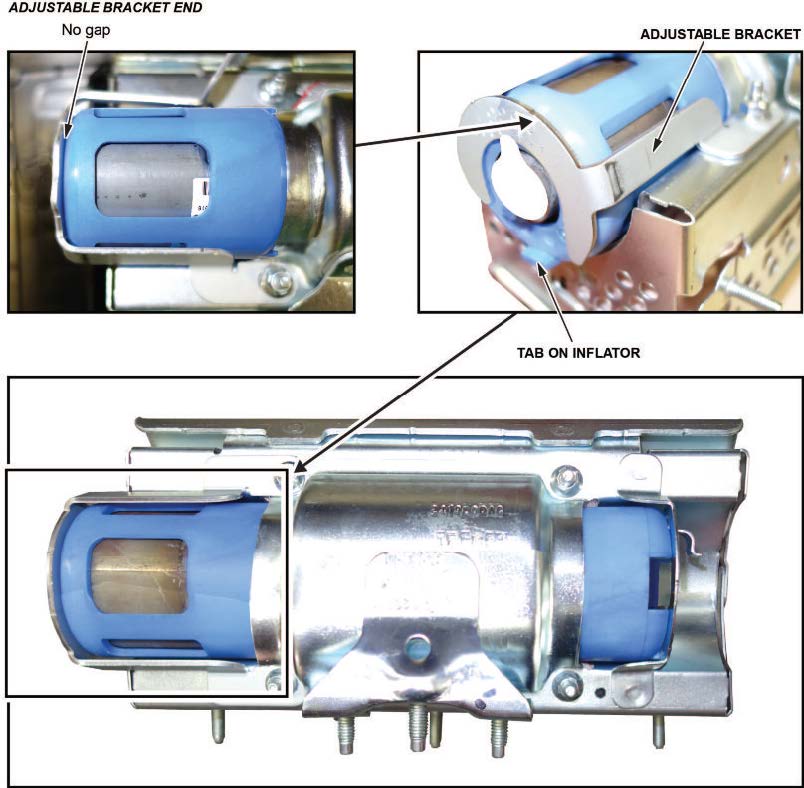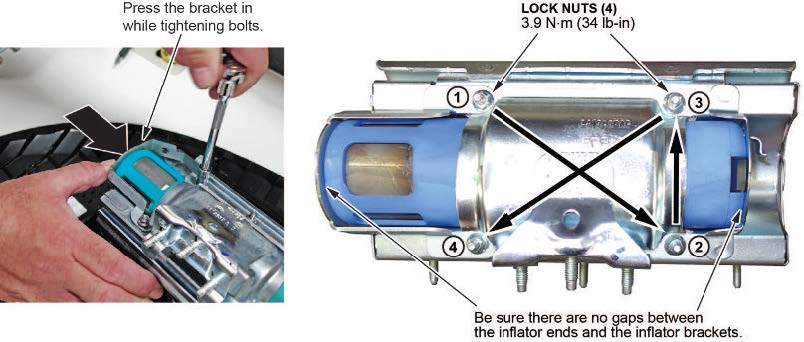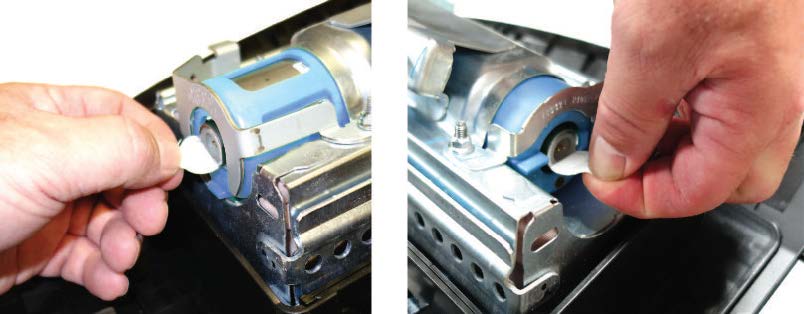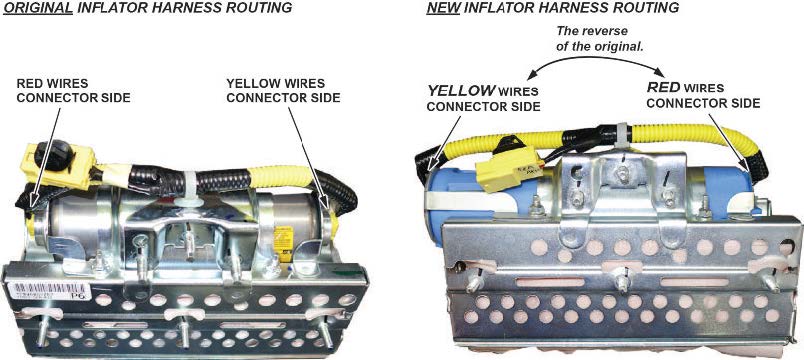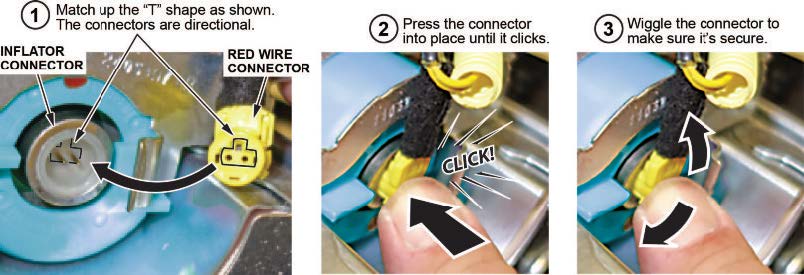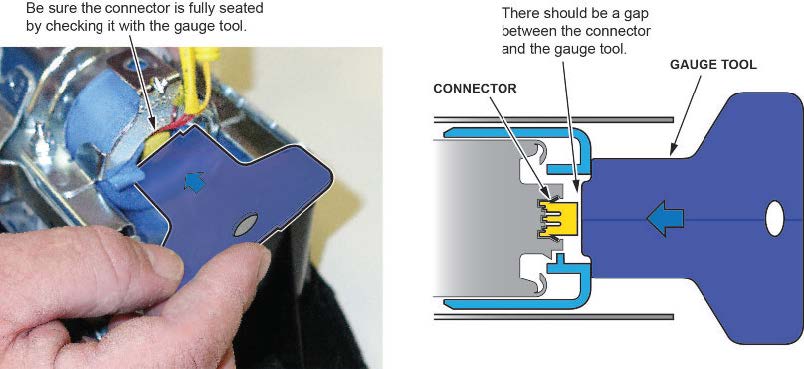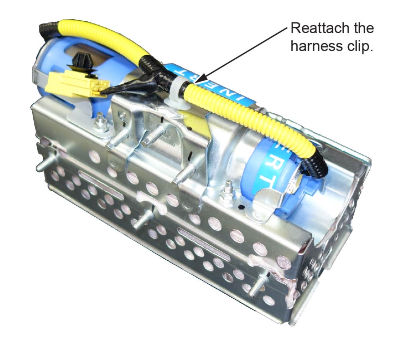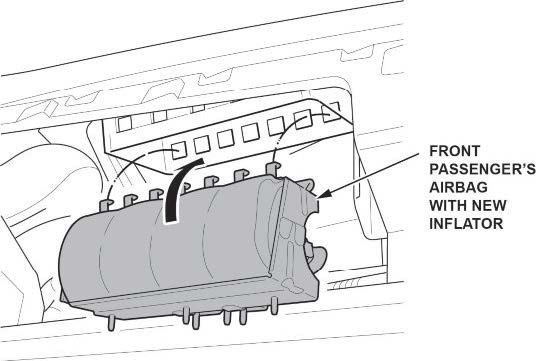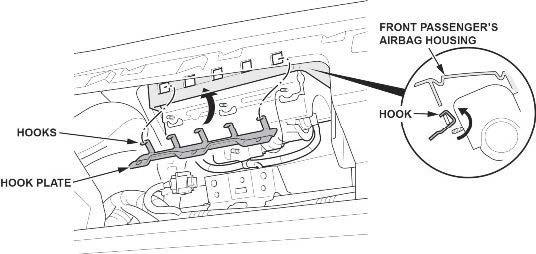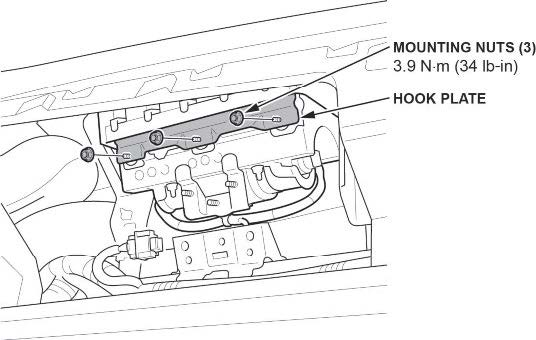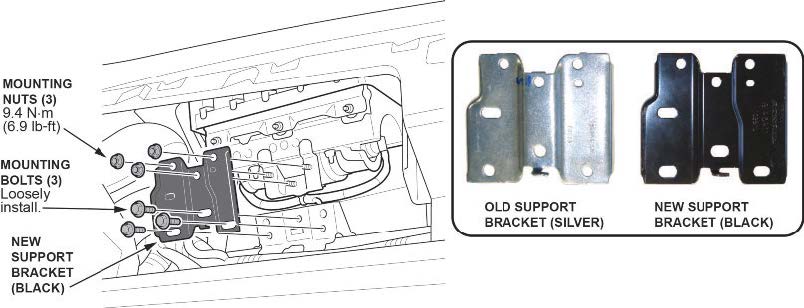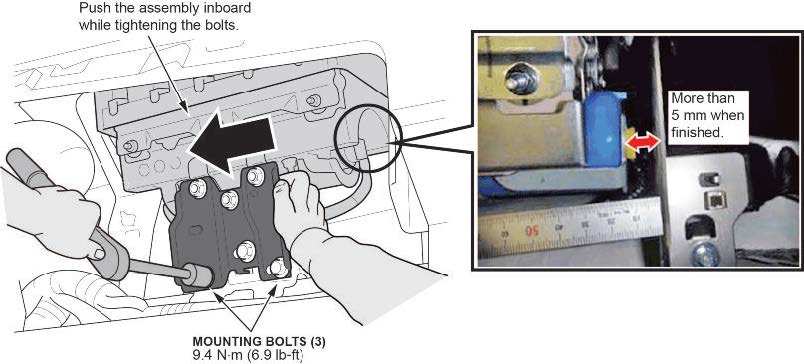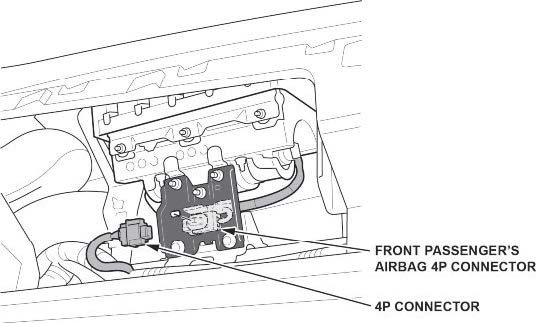| “This site contains affiliate links for which OEMDTC may be compensated” |
June 27, 2019 NHTSA CAMPAIGN NUMBER: 19V502000
Passenger Frontal Air Bag Inflator May Explode
An inflator explosion may result in sharp metal fragments striking the driver or other occupants resulting in serious injury or death.
NHTSA Campaign Number: 19V502
Manufacturer Honda (American Honda
(American Honda Motor Co.)
Motor Co.)
Components AIR BAGS
Potential Number of Units Affected 9,566
Summary
Honda (American Honda
(American Honda Motor Co.) is recalling certain 2009-2014 Acura
Motor Co.) is recalling certain 2009-2014 Acura TSX, 2011-2014 TSX Sport Wagon, 2010-2013 ZDX, 2008-2012 Honda
TSX, 2011-2014 TSX Sport Wagon, 2010-2013 ZDX, 2008-2012 Honda Accord, 2010-2011 Accord Crosstour, 2006-2011 Civic and Civic Hybrid, 2008-2010 Civic GX NGV, 2012-2015 Crosstour, 2007-2011 CR-V, 2009-2013 Fit, 2014 Fit EV, 2010-2014 Insight, and 2009-2015 Pilot vehicles.
Accord, 2010-2011 Accord Crosstour, 2006-2011 Civic and Civic Hybrid, 2008-2010 Civic GX NGV, 2012-2015 Crosstour, 2007-2011 CR-V, 2009-2013 Fit, 2014 Fit EV, 2010-2014 Insight, and 2009-2015 Pilot vehicles.
The vehicles are equipped with passenger frontal air bag inflators assembled as a recall remedy part or replacement service part, that may explode due to propellant degradation occurring after long-term exposure to high absolute humidity, temperature and temperature cycling.
Remedy
Honda will notify owners, and dealers will replace the passenger frontal air bag inflator, free of charge. The recall began August 12, 2019. Owners may contact Honda
will notify owners, and dealers will replace the passenger frontal air bag inflator, free of charge. The recall began August 12, 2019. Owners may contact Honda customer service at 1-888-234-2138. Honda
customer service at 1-888-234-2138. Honda ’s numbers for this recall are F5F and Q5E.
’s numbers for this recall are F5F and Q5E.
Notes
Owners may also contact the National Highway Traffic Safety Administration Vehicle Safety Hotline at 1-888-327-4236 (TTY 1-800-424-9153), or go to www.safercar.gov.
Check if your Honda has a Recall
A19-079
September 4, 2019
Version 2
Safety Recall: Takata Front Passenger’s Airbag Inflator (Phase 5)
Supersedes 19-079, dated June 28, 2019, to revise the information highlighted in yellow.
Following NHTSA direction, there are five phases based on three different zones. This is the final phase and includes all three zones.
AFFECTED VEHICLES
| Year | Model | Trim | VIN Range |
| 2008-12 | Accord | ALL | Check the iN VIN status for eligibility. |
| 2010-11 | Accord Crosstour | ALL | Check the iN VIN status for eligibility. |
| 2006-11 | Civic | ALL | Check the iN VIN status for eligibility. |
| 2008-10 | Civic NGV | ALL | Check the iN VIN status for eligibility. |
| 2006-11 | Civic Hybrid | ALL | Check the iN VIN status for eligibility. |
| 2012-15 | Crosstour | ALL | Check the iN VIN status for eligibility. |
| 2007-11 | CR-V | ALL | Check the iN VIN status for eligibility. |
| 2009-13 | Fit | ALL | Check the iN VIN status for eligibility. |
| 2014 | Fit EV | ALL | Check the iN VIN status for eligibility. |
| 2010-14 | Insight | ALL | Check the iN VIN status for eligibility. |
| 2009-15 | Pilot | ALL | Check the iN VIN status for eligibility. |
BACKGROUND
NHTSA and its independent expert reviewed the findings of three independent investigations into the Takata airbag inflator ruptures. According to NHTSA, the combination of time, high temperature fluctuations, and humidity contribute to the degradation of the propellant in the inflators. NHTSA has concluded that this degradation can cause the propellant to burn too quickly, creating more pressure than the inflator can withstand, and, in extreme cases, causing the inflator to rupture and send shrapnel through the air bag toward vehicle occupants. NHTSA is prioritizing the recall of air bag inflators based on the risk of injury or death to vehicle occupants.
This is the final phase to this campaign and involves vehicles that previously had the passenger’s airbag non-desiccated inflator replaced with a similar non-desiccated inflator (like for like), or airbag module replaced with one that contained a non-desiccated inflator. This replacement may have been done as part of a recall or other repair. Always do an iN VIN status inquiry to see if a vehicle is affected.
In early September 2019, the V-SMART tool was shipped to your dealership. This tool is used to help validate the installation of the front passenger’s airbag replacement inflator. Beginning September 30, 2019, V-SMART will be a required tool for the installation of the front passenger’s airbag replacement inflator. V-SMART validation for each of these repairs will be required for any and all warranty claims to be paid for such repairs. Refer to the job aid Using V-SMART and the Tech2Tech® video “Using V-SMART” for more information.
For more information about these inflator recalls, go to www.safercar.gov and use keyword TAKATA.
There are several bulletins with similar years and models. Make sure to do an iN VIN status inquiry and follow the indicated service bulletin.
Do an iN VIN status inquiry and, if indicated, repair the vehicle even though the vehicle may have been repaired under a previous campaign.
NOTE
If the VIN status inquiry indicates that the vehicle is subject to any open safety recalls, including the driver’s airbag inflator, make sure to also complete those recall repairs before returning the vehicle to the customer. If you are unable to complete any open recall, advise the customer of the recall status and when the recall could be completed.
You may receive a different part number than ordered, and the inflator may appear different. As a result, there may be different installation instructions. Make sure you review this service bulletin for installation instructions and details about model applicability.
REVISION SUMMARY
Under BACKGROUND and REPAIR PROCEDURE, the V-SMART tool was added.
REPAIR PROCEDURE TABLE OF CONTENTS
| Vehicle | Page |
| Accord, Accord Crosstour, Crosstour | 7 |
| Civic, Civic Hybrid, Civic NGV | 17 |
| CR-V | 27 |
| Fit, Fit EV | 37 |
| Insight | 47 |
| Pilot | 57 |
CUSTOMER NOTIFICATION
Owners of affected vehicles will be sent a notification of this campaign.
Do an iN VIN status inquiry to make sure the vehicle is shown as eligible.
Some vehicles affected by this campaign may be in your used vehicle inventory.
Failure to repair a vehicle subject to a recall or campaign may subject your dealership to claims or lawsuits from the customer or anyone else harmed as a result of such failure. To see if a vehicle in inventory is affected by this safety recall, do a VIN status inquiry before selling it.
CORRECTIVE ACTION
Replace the passenger’s airbag inflator, then return the original, undeployed inflator as directed.
PARTS INFORMATION
| Part Name | Order Part Number | You may receive any of the following | Quantity |
| 2008-12 Accord Front Passenger’s Airbag Inflator Kit | 04790-TA0-407 | 04790-TA0-407
04790-TA0-A00 | 1 |
| 2010-11 Accord Crosstour Front Passenger’s Airbag Inflator Kit | 04790-TA0-407 | 04790-TA0-407
04790-TA0-A00 | 1 |
| 2006-11 Civic (includes GX and Hybrid) Front Passenger’s Airbag Inflator Kit | 04790-SNA-407 | 04790-SNA-407
04790-SNA-A00 | 1 |
| 2012-15 Crosstour Front Passenger’s Airbag Inflator Kit | 04790-TA0-407 | 04790-TA0-407
04790-TA0-A00 | 1 |
| 2007-11 CR-V Front Passenger’s Airbag Inflator Kit | 04790-SWA-407 | 04790-SWA-407
04790-SWA-A00 | 1 |
| 2009-13 Fit Front Passenger’s Airbag Inflator Kit | 04790-TK6-407 | 04790-TK6-407
04790-TK6-A00 | 1 |
| 2014 Fit EV Front Passenger’s Airbag Inflator Kit | 04790-TK6-407 | 04790-TK6-407
04790-TK6-A00 | 1 |
| 2010-14 Insight Front Passenger’s Airbag Inflator Kit | 04790-TM8-407 | 04790-TM8-407
04790-TM8-A00 | 1 |
| 2009-15 Pilot Front Passenger’s Airbag Inflator Kit | 04790-SZA-407 | 04790-SZA-407
04790-SZA-A00 | 1 |
NOTES
- The inflator kit box must be used to return the recalled inflator to its supplier. Be careful not to damage the inflator kit box.
- If the recalled, undeployed inflator is not returned, the warranty claim for that vehicle will be charged back to your dealership.
- To return the undeployed inflators, follow the shipping instructions outlined in PIB A15-0002, Inflator Kit Return Process.
- Parts staff can scan the part number and serial number from the outside of the box into the warranty claim by using the Controlled Part Serial No. screen and scanning the applicable information. Refer to the job aid Ordering and Managing Replacement Airbag Inflators for more information.
REQUIRED TOOLS
| Tool Name | Part Number | Quantity |
| PSPI6 Gauge Tool | 070AJ-TA00A00 or
07AAJ-TA0AA00 | 1 |
NOTES
- Each dealer was previously sent over 10 tools. If you need more, the gauge is available for dealer ordering.
- This tool is for use on the inflators with blue collars only.
WARRANTY CLAIM INFORMATION
NOTES
- Process claims as quickly as possible so that resources can be properly allocated.
- Enter the part number of the inflator that you received into the warranty claim, not the part number that you ordered. For more information, refer to step 6 of REPAIR PROCEDURE.
- To avoid non-payment of warranty claims, the serial number on the box of the new airbag inflator must be entered in the warranty claim. For more information, refer to step 6 of REPAIR PROCEDURE.
- To avoid a warranty claim being charged back to your dealership, you must return the recalled, undeployed inflator to its supplier. Follow the shipping instructions outlined in PIB A15-0002, Inflator Kit Return Process.
- The serial number is encoded into the bar code printed on the label inside of the box and on a label attached to the outside of the box. If your dealership uses a scanner, you can scan the serial number from either place into the claim.
- The part number is encoded into a barcode attached to the outside of the box. If your dealership uses a scanner, you can scan the part number into the claim.
- If you confuse the serial number and part number when entering the claim information, your claim will automatically be rejected.
- For more information about scanning and filing airbag inflator recall claims, refer to Ordering and Managing Replacement Airbag Inflators. From the iN, select Service, Warranty, Warranty Claim, then Reference Guide. Under HOT TIPS/TOPICS, select Inflator Claims at a Glance.
- Each VIN is assigned to a specific campaign. Make sure you file a claim using the correct warranty claim information to avoid your claim being rejected.
| Year/ Model | Operation Number | Replacement Part Number | Flat Rate Time | Defect Code | Symptom Code | Template ID | Failed Part Number |
| 2008-12 Accord | 7541G3 | 04790-TA0-407 | 0.7 hr | 6EE00 | Q5E00 | A19079A | 77820-TA0-A80ZC |
| 7541G3 | 04790-TA0-A00 | 0.7 hr | 6EE00 | Q5E00 | A19079B | 77820-TA0-A80ZC | |
| 2010-11 Accord Crosstour
2012-15 Crosstour | 7541G3 | 04790-TA0-407 | 0.7 hr | 6EE00 | Q5E00 | A19079C | 77820-TA0-A80ZC |
| 7541G3 | 04790-TA0-A00 | 0.7 hr | 6EE00 | Q5E00 | A19079D | 77820-TA0-A80ZC | |
| 2006-11 Civic (Includes CNG & Hybrid) | 7541G3 | 04790-SNA-407 | 0.8 hr | 6EE00 | Q5E00 | A19079E | 77820-SNA-A82ZA |
| 7541G3 | 04790-SNA-A00 | 0.8 hr | 6EE00 | Q5E00 | A19079F | 77820-SNA-A82ZA | |
| 2007-11 CR-V | 7541G3 | 04790-SWA-407 | 0.7 hr | 6EE00 | Q5E00 | A19079G | 77820-SWA-A80ZA |
| 7541G3 | 04790-SWA-A00 | 0.7 hr | 6EE00 | Q5E00 | A19079H | 77820-SWA-A80ZA | |
| 2009-13 Fit
2014 FIT EV | 7541G3 | 04790-TK6-407 | 0.9 hr | 6EE00 | Q5E00 | A19079I | 77820-TK6-A80ZA |
| 7541G3 | 04790-TK6-A00 | 0.9 hr | 6EE00 | Q5E00 | A19079J | 77820-TK6-A80ZA | |
| 2010-14 Insight | 7541G3 | 04790-TM8-407 | 0.6 hr | 6EE00 | Q5E00 | A19079K | 77820-TM8-A80ZB |
| 7541G3 | 04790-TM8-A00 | 0.6 hr | 6EE00 | Q5E00 | A19079L | 77820-TM8-A80ZB | |
| 2009-15 Pilot | 7541G3 | 04790-SZA-407 | 0.6 hr | 6EE00 | Q5E00 | A19079M | 77851-SZA-A12 |
| 7541G3 | 04790-SZA-A00 | 0.6 hr | 6EE00 | Q5E00 | A19079N | 77851-SZA-A12 |
Skill Level: Repair Technician
IDENTIFYING COUNTERFEIT AIRBAGS
This section goes over the steps to identify counterfeit airbags and applies to all vehicles in this service bulletin. It is referred to in each vehicle’s repair procedure. Click HERE to watch a video to help identify counterfeit airbags.
- If there is nothing unusual about the airbag or the inflator, continue with the inflator replacement procedure.
- If there are any unusual markings, like an incorrect label or a model year written in marker, the airbag and inflator may not be the correct airbag and/or inflator for the vehicle or it may be a counterfeit part. For more information about counterfeit airbags, you can refer to safercar.gov, enter keywords MANAGING COUNTERFEIT, and select Recommended Dealer Guidance for Managing Counterfeit Air Bags from the list. If you suspect that the airbag or inflator is counterfeit, do not continue this procedure. Contact your DPSM for assistance.
REPAIR PROCEDURE ACCORD/ACCORD CROSSTOUR/CROSSTOUR
NOTES
- If the VIN status inquiry indicates that the vehicle is subject to any open safety recalls, including the driver’s airbag inflator, make sure to also complete those recall repairs before returning the vehicle to the customer. If you are unable to complete any open recall, advise the customer of the recall status and when the recall could be completed.
- Make sure you have the anti-theft code for the audio and navigation system (if applicable), then write down the frequencies for the audio unit’s preset buttons.
- Be careful not to damage any parts when replacing the inflator, and follow the procedure exactly.
- If, before removing the airbag, you suspect that it may be the incorrect airbag for the vehicle or a counterfeit, do not remove the airbag. Contact your DPSM for assistance.
- Make sure you have reviewed the SRS Precautions and Procedures in the service information before doing the REPAIR PROCEDURE.
- Turn the ignition to ON, and check if the SRS indicator comes on for about 6 seconds, then turns off.
- If the indicator comes on, then turns off after about 6 seconds, turn the ignition OFF, then go to step 2.
- If the indicator does not come on, or if it stays on, contact your DPSM for assistance.
- Disconnect the battery negative cable and wait at least 3 minutes before continuing.
- Remove the front passenger’s airbag. Refer to the applicable vehicle’s service information.
- Place the airbag, face-down, on a clean shop towel.
NOTES
- The orientation of the airbag is critical because if the inflator is installed incorrectly, the harness will be too short when you reinstall the airbag.
- The brackets between the various models are similar but may differ from the example shown.
- Visually inspect the airbag and the inflator for any unusual writing or markings. Refer to IDENTIFYING COUNTERFEIT AIRBAGS.
- Peel the label located inside the inflator box from its backing, and attach it to the RO. For the warranty claim to be paid, the replacement inflator part number that you received must be included in the warranty claim.
NOTES
- The replacement part number is printed on the top part of the label, and the serial number is printed on the bottom. Make sure you attach the label to the RO and give it to the warranty clerk .
- There may also be a colored sticker located in the kit; ignore it because it is not used.
- Not all inflator kits have a label included. In those cases, write the serial number and part number from the side of the inflator box on the RO. The part number always starts with 047.
- Remove the harness from both ends of the inflator bracket.
- Short the yellow wires.
NOTES
- You must cut the yellow wires for inflator removal and short the yellow wires on the inflator side as indicated to prevent accidental deployment.
- Do not cut the red wires because the airbag connector shorts these inflator wires.
8.1 Cut 1–2 inches of the protective tube to access the yellow wires.
8.2 Cut the yellow wires as shown.
8.3 Strip away about 1 inch of the yellow wire insulation, then twist the wires together.
8.4 Tape the twisted ends with electrical tape.
- Remove the four inflator nuts.
- Remove the inflator bracket.
NOTES
- You can only remove one of the brackets, as the other is welded to the airbag housing.
- Do not reuse the bracket; use the new one that came in the inflator kit.
- Remove the inflator by pushing it out.
- Install the new inflator.
NOTE
There may be some minor surface rust or corrosion on the new inflator; this is OK.
Click HERE for a short video about the different variations of the driver’s and front passenger’s replacement inflators involved with the recalls related to inflators. While both the driver’s and front passenger’s inflators are shown in the video, this is informational only. Replace inflators only as directed by the iN VIN status inquiry.
Check your part number against the ones listed for each installation procedure. Use the correct installation procedure for the part you received.
NOTE
These inflators have blue collars.
| 04790-TA0-407 | 04790-TA0-A00 |
12.1. One side of the inflator has a longer collar, a single tab, and a small flat spot on the connector. The other side of the inflator has a shorter collar, two tabs, and a notch with a red dot. Make sure you insert the end with the shorter collar into the airbag first.
NOTES
- The V-SMART tool can only validate inflators with slotted end caps. You may receive an inflator with solid end caps. This is the correct part to repair the vehicle, but the V-SMART will fail the validation. The VSMART validation must fail a total of three times before you can have your supervisor override the validation using the Supervisor Inspection Override.
- Your supervisor can be a service manager, shop foreman, team leader, etc. The supervisor must inspect your work to make sure the replacement inflator was installed correctly. When a supervisor enters his or her information, the supervisor is signing off that the technician’s work was inspected and approved.
12.2. Slide the inflator in until the plastic collar contacts the bracket. The two tabs should align with the metal tab as shown. There should be no space or gap between the inflator and bracket.
12.3. Install the bracket included in the kit onto the airbag module. Check there is no space or gap between the inflator and bracket by pushing the bracket against the inflator.
NOTE
The bracket may have a little bit of play before you install the new nuts.
- Hold the bracket against the inflator, then install the new 5 mm locknuts, and torque them in sequence to 4.0 N•m (34 lb-in) .
- Remove the stickers covering the terminals on both sides of the new inflator.
- Using the V-SMART tool, validate that the airbag replacement inflator is installed correctly.
NOTES
- You must validate the front passenger’s airbag replacement inflator installation using the V-SMART tool before connecting the inflator harness.
- Your warranty claim will not be paid if the V-SMART validation is not completed or the photo is not sent. Make sure you see the Uploaded Completed message to confirm the photo was sent to the warranty department.
- Install the new inflator harness.
16.1. Make sure the airbag and harness are aligned as shown.
NOTES
- The replacement inflator harnesses may have the wire colors in the opposite positions of the original harness. If you connect the harness incorrectly, the harness cannot be removed and you will not be able to reinstall the airbag because the harness will be too short.
- Connect the red wire connector to the side of the inflator with the red dot.
- On vehicles with the blue inflator, the red dot is not visible because it is covered by the bracket.
16.2 Connect the red wire connector to the connector on the side with the short plastic collar. Align the “T” shape inthe inflator harness connector with the T-shaped inflator connector, then press the connector into place.
16.3 Connect the yellow wire connector to the connector on the side with the long plastic collar.
16.4 After you hear each connector click, wiggle it to make sure it is secure.
NOTE
If the connector is not properly aligned, it will come out.
16.5. Make sure the connector is secure and in place by using the gauge tool. (PSPI6 Gauge Tool P/N: 070AJTA00A00 or 07AAJ-TA0AA00).
- Connect the harness to the inflator brackets.
- Install the passenger’s airbag into the vehicle and torque the new locknuts to 9.8 N•m (7.2 lb-ft) .
- Connect the battery negative cable, and enter the anti-theft code for the audio and navigation system (if applicable),then enter the audio unit presets.
- Set the clock (for vehicles without navigation).
- Turn the ignition to ON, and make sure the SRS indicator comes on for about 6 seconds, then goes off.
- Put the original inflator into the box the new one came in. Make sure there is no other hardware in the box because if the package rattles, it will not be accepted by the courier.
- Follow the shipping instructions outlined in PIB A15-0002 to return the undeployed inflator.
- Give your warranty clerk the RO that includes the replacement inflator serial number and replacement part number. For the warranty claim to be paid, the replacement inflator part number must be included in the warranty claim.
REPAIR PROCEDURE CIVIC, CIVIC CNG, AND CIVIC HYBRID
NOTES
- If the VIN status inquiry indicates that the vehicle is subject to any open safety recalls, including the driver’s airbag inflator, make sure to also complete those recall repairs before returning the vehicle to the customer. If you are unable to complete any open recall, advise the customer of the recall status and when the recall could be completed.
- Make sure you have the anti-theft code for the audio and navigation system (if applicable), then write down the frequencies for the audio unit’s preset buttons.
- Be careful not to damage any parts when replacing the inflator, and follow the procedure exactly.
- If, before removing the airbag, you suspect that it may be the incorrect airbag for the vehicle or a counterfeit, do not remove the airbag. Contact your DPSM for assistance.
- Make sure you have reviewed the SRS Precautions and Procedures in the service information before doing the REPAIR PROCEDURE.
- Turn the ignition to ON, and check if the SRS indicator comes on for about 6 seconds, then turns off.
- If the indicator comes on, then turns off after about 6 seconds, turn the ignition OFF, then go to step 2.
- If the indicator does not come on, or if it stays on, contact your DPSM for assistance.
- Disconnect the battery negative cable and wait at least 3 minutes before continuing.
- Remove the front passenger’s airbag. Refer to the applicable vehicle’s service information.
- Place the airbag, face-down, on a clean shop towel.
NOTES
- The orientation of the airbag is critical because if the inflator is installed incorrectly, the harness will be too short when you reinstall the airbag.
- The brackets between the various models are similar but may differ from the example shown.
- Visually inspect the airbag and the inflator for any unusual writing or markings. Refer to IDENTIFYING COUNTERFEIT AIRBAGS.
- Peel the label located inside the inflator box from its backing, and attach it to the RO. For the warranty claim to be paid, the replacement inflator part number that you received must be included in the warranty claim.
NOTES
- The replacement part number is printed on the top part of the label, and the serial number is printed on the bottom. Make sure you attach the label to the RO and give it to the warranty clerk .
- There may also be a colored sticker located in the kit, ignore it because it is not used.
- Not all inflator kits have a label included. In those cases, write the serial number and part number from the side of the inflator box on the RO. The part number always starts with 047.
- Remove the harness from both ends of the inflator bracket.
- Short the yellow wires.
NOTES
- You must cut the yellow wires for inflator removal and short the yellow wires on the inflator side as indicated to prevent accidental deployment.
- Do not cut the red wires because the airbag connector shorts these inflator wires.
8.1 Cut 1–2 inches of the corrugated tube to access the yellow wires.
8.2 Cut the yellow wires as shown.
8.3 Strip away about 1 inch of the yellow wire insulation, then twist the wires together.
8.4 Tape the twisted ends with electrical tape.
- Remove the four inflator nuts.
- Remove the inflator bracket.
NOTES
- You can only remove one of the brackets, as the other is welded to the airbag housing.
- Do not reuse the bracket; use the new one that came in the inflator kit.
- Remove the inflator by pulling it out.
- Install the new inflator.
NOTE
There may be some minor surface rust or corrosion on the new inflator; this is OK.
Click HERE for a short video about the different variations of the driver’s and front passenger’s replacement inflators involved with the recalls related to inflators. While both the driver’s and front passenger’s inflators are shown in the video, this is informational only. Replace inflators only as directed by the iN VIN status inquiry.
Check your part number against the ones listed for each installation procedure. Use the correct installation procedure for the part you received.
NOTE
These inflators have green collars.
| 04790-SNA-407 | 04790-SNA-A00 |
12.1. One side of the inflator has a longer collar, a single tab, and a small flat spot on the connector. The other side of the inflator has a shorter collar, two tabs, and a red dot. Make sure you insert the end with the shorter collar into the airbag first.
NOTES
- The V-SMART tool can only validate inflators with slotted end caps. You may receive an inflator with solid end caps. This is the correct part to repair the vehicle, but the V-SMART will fail the validation. The VSMART validation must fail a total of three times before you can have your supervisor override the validation using the Supervisor Inspection Override.
- Your supervisor can be a service manager, shop foreman, team leader, etc. The supervisor must inspect your work to make sure the replacement inflator was installed correctly. When a supervisor enters his or her information, the supervisor is signing off that the technician’s work was inspected and approved.
12.2. Slide the inflator in until the plastic collar contacts the bracket. The two tabs should align with the side of the airbag module and the metal tab as shown. There should be no space or gap between the inflator and bracket.
12.3. Install the bracket included in the kit onto the airbag module. Check there is no space or gap between the inflator and bracket by pushing the bracket against the inflator.
NOTE
The bracket may have a little bit of play before you install the new nuts.
- Hold the bracket against the inflator, then install the new 5 mm locknuts, and torque them in sequence to 4.0 N•m (34 lb-in)
NOTE
Make sure you push the bracket against the inflator to ensure there are no gaps between the brackets and inflator when torqueing the nuts.
- Remove the stickers covering the terminals on both sides of the new inflator.
- Using the V-SMART tool, validate that the airbag replacement inflator is installed correctly.
NOTES
- You must validate the front passenger’s airbag replacement inflator installation using the V-SMART tool before connecting the inflator harness.
- Your warranty claim will not be paid if the V-SMART validation is not completed or the photo is not sent. Make sure you see the Uploaded Completed message to confirm the photo was sent to the warranty department.
- Install the new inflator harness.
16.1. Make sure the airbag and harness are aligned as shown.
NOTES
- The replacement inflator harnesses may have the wire colors in the opposite positions of the original harness. If you connect the harness incorrectly, the harness cannot be removed and you will not be able to reinstall the airbag because the harness will be too short.
- Connect the red wire connector to the side of the inflator with the red dot.
16.2 Connect the red wire connector to the connector on the side with the short plastic collar. Align the “T” shape inthe inflator harness connector with the T-shaped inflator connector, then press the connector into place.
16.3 Connect the yellow wire connector to the connector on the side with the long plastic collar.
16.4 After you hear each connector click, wiggle it to make sure it is secure.
NOTE
If the connector is not properly aligned, it will come out.
- Connect the harness to the inflator brackets.
- Install the passenger’s airbag into the vehicle and torque the new locknuts to 9.8 N•m (7.2 lb-ft) .
- Connect the battery negative cable and enter the anti-theft code for the audio and navigation system (if applicable),then enter the audio unit presets.
- Set the clock (for vehicles without navigation).
- Turn the ignition to ON and make sure the SRS indicator comes on for about 6 seconds, then goes off.
- Put the original inflator into the box the new one came in. Make sure there is no other hardware in the box because if the package rattles, it will not be accepted by the courier.
- Follow the shipping instructions outlined in PIB A15-0002 to return the undeployed inflator.
- Give your warranty clerk the RO that includes the replacement inflator serial number and replacement part number. For the warranty claim to be paid, the replacement inflator part number must be included in the warranty claim.
REPAIR PROCEDURE CR-V
NOTES
- If the VIN status inquiry indicates that the vehicle is subject to any open safety recalls, including the driver’s airbag inflator, make sure to also complete those recall repairs before returning the vehicle to the customer. If you are unable to complete any open recall, advise the customer of the recall status and when the recall could be completed.
- Make sure you have the anti-theft code for the audio and navigation system (if applicable), then write down the frequencies for the audio unit’s preset buttons.
- Be careful not to damage any parts when replacing the inflator, and follow the procedure exactly.
- If, before removing the airbag, you suspect that it may be the incorrect airbag for the vehicle or a counterfeit, do not remove the airbag. Contact your DPSM for assistance.
- Make sure you have reviewed the SRS Precautions and Procedures in the service information before doing the REPAIR PROCEDURE.
- Turn the ignition to ON, and check if the SRS indicator comes on for about 6 seconds, then turns off.
- If the indicator comes on, then turns off after about 6 seconds, turn the ignition OFF, then go to step 2.
- If the indicator does not come on, or if it stays on, contact your DPSM for assistance.
- Disconnect the battery negative cable and wait at least 3 minutes before continuing.
- Remove the front passenger’s airbag. Refer to the applicable vehicle’s service information.
- Place the airbag, face-down, on a clean shop towel.
NOTES
- The orientation of the airbag is critical because if the inflator is installed incorrectly, the harness will be too short when you reinstall the airbag.
- The brackets between the various models are similar but may differ from the example shown.
- Visually inspect the airbag and the inflator for any unusual writing or markings. Refer to IDENTIFYING COUNTERFEIT AIRBAGS.
- Peel the label located inside the inflator box from its backing, and attach it to the RO. For the warranty claim to be paid, the replacement inflator part number that you received must be included in the warranty claim.
NOTES
- The replacement part number is printed on the top part of the label, and the serial number is printed on the bottom. Make sure you attach the label to the RO and give it to the warranty clerk .
- There may also be a colored sticker located in the kit; ignore it because it is not used.
- Not all inflator kits have a label included. In those cases, write the serial number and part number from the side of the inflator box on the RO. The part number always starts with 047.
- Remove the harness from both ends of the inflator bracket.
- Short the yellow wires.
NOTES
- You must cut the yellow wires for inflator removal and short the yellow wires on the inflator side as indicated to prevent accidental deployment.
- Do not cut the red wires because the airbag connector shorts these inflator wires.
8.1 Cut the yellow wires as shown.
8.2 Strip away about 1 inch of the yellow wire insulation, then twist the wires together.
8.3 Tape the twisted ends with electrical tape.
- Remove the four inflator nuts.
- Remove the inflator bracket.
NOTES
- You can only remove one of the brackets, as the other is welded to the airbag housing.
- Do not reuse the bracket; use the new one that came in the inflator kit.
- Remove the inflator by pushing it out.
- Install the new inflator.
NOTE
There may be some minor surface rust or corrosion on the new inflator; this is OK.
Click HERE for a short video about the different variations of the driver’s and front passenger’s replacement inflators involved with the recalls related to inflators. While both the driver’s and front passenger’s inflators are shown in the video, this is informational only. Replace inflators only as directed by the iN VIN status inquiry.
Check your part number against the ones listed for each installation procedure. Use the correct installation procedure for the part you received.
NOTE
These inflators have blue collars.
| P/N 04790-SWA-407 | 04790-SWA-A00 |
12.1. One side of the inflator has a longer collar, a single tab, and a small flat spot on the connector. The other side of the inflator has a shorter collar, two tabs, and a notch with a red dot. Make sure you insert the end with the shorter collar into the airbag first
NOTES
- The V-SMART tool can only validate inflators with slotted end caps. You may receive an inflator with solid end caps. This is the correct part to repair the vehicle, but the V-SMART will fail the validation. The VSMART validation must fail a total of three times before you can have your supervisor override the validation using the Supervisor Inspection Override.
- Your supervisor can be a service manager, shop foreman, team leader, etc. The supervisor must inspect your work to make sure the replacement inflator was installed correctly. When a supervisor enters his or her information, the supervisor is signing off that the technician’s work was inspected and approved.
12.2. Slide the inflator in until the plastic collar contacts the bracket. The two tabs should align with the side of the airbag module and the metal tab as shown. There should be no space or gap between the inflator and bracket.
12.3. Install the bracket included in the kit onto the airbag module. Check there is no space or gap between the inflator and bracket by pushing the bracket against the inflator.
NOTE
The bracket may have a little bit of play before you install the new nuts.
- Hold the bracket against the inflator, then install the new 5 mm locknuts, and torque them in sequence to 4.0 N•m (34 lb-in) .
NOTE
Make sure you push the bracket against the inflator to ensure there are no gaps between the brackets and inflator when torqueing the nuts.
- Remove the stickers covering the terminals on both sides of the new inflator.
- Using the V-SMART tool, validate that the airbag replacement inflator is installed correctly.
NOTES
- You must validate the front passenger’s airbag replacement inflator installation using the V-SMART tool before connecting the inflator harness.
- Your warranty claim will not be paid if the V-SMART validation is not completed or the photo is not sent. Make sure you see the Uploaded Completed message to confirm the photo was sent to the warranty department.
- Install the new inflator harness.
16.1. Make sure the airbag and harness are aligned as shown.
NOTES
- The replacement inflator harnesses may have the wire colors in the opposite positions of the original harness. If you connect the harness incorrectly, the harness cannot be removed and you will not be able to reinstall the airbag because the harness will be too short.
- Connect the red wire connector to the side of the inflator with the red dot.
- On vehicles with the blue inflator, the red dot is not visible because it is covered by the bracket.
16.2 Connect the red wire connector to the connector on the side with the short plastic collar. Align the “T” shape inthe inflator harness connector with the T-shaped inflator connector, then press the connector into place.
16.3 Connect the yellow wire connector to the connector on the side with the long plastic collar.
16.4 After you hear each connector click, wiggle it to make sure it is secure.
NOTE
If the connector is not properly aligned, it will come out.
16.5. Make sure the connector is secure and in place by using the gauge tool. (PSPI6 Gauge Tool P/N: 070AJTA00A00 or 07AAJ-TA0AA00).
- Connect the harness to the inflator brackets.
- Install the passenger’s airbag into the vehicle and torque the new locknuts to 9.8 N•m (7.2 lb-ft) .
- Connect the battery negative cable and enter the anti-theft code for the audio and navigation system (if applicable),then enter the audio unit presets.
- Set the clock (for vehicles without navigation).
- Turn the ignition ON and make sure the SRS indicator comes on for about 6 seconds, then goes off.
- Put the original inflator into the box the new one came in. Make sure there is no other hardware in the box because if the package rattles, it will not be accepted by the courier.
- Follow the shipping instructions outlined in PIB A15-0002 to return the undeployed inflator.
- Give your warranty clerk the RO that includes the replacement inflator serial number and replacement part number. For the warranty claim to be paid, the replacement inflator part number must be included in the warranty claim.
REPAIR PROCEDURE FIT AND FIT EV
NOTES
- If the VIN status inquiry indicates that the vehicle is subject to any open safety recalls, including the driver’s airbag inflator, make sure to also complete those recall repairs before returning the vehicle to the customer. If you are unable to complete any open recall, advise the customer of the recall status and when the recall could be completed.
- Make sure you have the anti-theft code for the audio and navigation system (if applicable), then write down the frequencies for the audio unit’s preset buttons.
- Be careful not to damage any parts when replacing the inflator, and follow the procedure exactly.
- If, before removing the airbag, you suspect that it may be the incorrect airbag for the vehicle or a counterfeit, do not remove the airbag. Contact your DPSM for assistance.
- Make sure you have reviewed the SRS Precautions and Procedures in the service information before doing the REPAIR PROCEDURE.
- Turn the ignition to ON position and check if the SRS indicator comes on for about 6 seconds, then turns off.
- If the indicator comes on, then turns off after about 6 seconds, turn the ignition to OFF, then go to step 2.
- If the indicator does not come on, or if it stays on, contact your DPSM for assistance.
- Disconnect the battery negative cable and wait at least 3 minutes before continuing.
- Remove the front passenger’s airbag. Refer to the applicable vehicle’s service information.
- Place the airbag, face-down, on a clean shop towel.
NOTES
- The orientation of the airbag is critical because if the inflator is installed incorrectly, the harness will be too short when you reinstall the airbag.
- The brackets between the various models are similar but may differ from the example shown.
- Visually inspect the airbag and the inflator for any unusual writing or markings. Refer to IDENTIFYING COUNTERFEIT AIRBAGS.
- Peel the label located inside the inflator box from its backing, and attach it to the RO. For the warranty claim to be paid, the replacement inflator part number that you received must be included in the warranty claim.
NOTES
- The replacement part number is printed on the top part of the label, and the serial number is printed on the bottom. Make sure you attach the label to the RO and give it to the warranty clerk .
- There may also be a colored sticker located in the kit; ignore it because it is not used.
- Not all inflator kits have a label included. In those cases, write the serial number and part number from the side of the inflator box on the RO. The part number always starts with 047.
- Remove the harness from both ends of the inflator bracket.
- Short the yellow wires.
NOTES
- You must cut the yellow wires for inflator removal and short the yellow wires on the inflator side as indicated to prevent accidental deployment.
- Do not cut the red wires because the airbag connector shorts these inflator wires.
8.1 Cut 1–2 inches of the protective tube to access the yellow wires.
8.2 Cut the yellow wires as shown.
8.3 Strip away about 1 inch of the yellow wire insulation, then twist the wires together.
8.4 Tape the twisted ends with electrical tape.
- Remove the four inflator nuts.
- Remove the inflator bracket.
NOTES
- You can only remove one of the brackets, as the other is welded to the airbag housing.
- Do not reuse the bracket; use the new one that came in the inflator kit.
- Remove the inflator by pushing it out.
- Install the new inflator.
NOTE
There may be some minor surface rust or corrosion on the new inflator; this is OK.
Click HERE for a short video about the different variations of the driver’s and front passenger’s replacement inflators involved with the recalls related to inflators. While both the driver’s and front passenger’s inflators are shown in the video, this is informational only. Replace inflators only as directed by the iN VIN status inquiry.
Check your part number against the ones listed for each installation procedure. Use the correct installation procedure for the part you received.
NOTE
These inflators have blue collars.
| 04790-TK6-407 | 04790-TK6-A00 |
12.1. One side of the inflator has a longer collar, a single tab, and a small flat spot on the connector. The other side of the inflator has a shorter collar, two tabs, and a notch with a red dot. Make sure you insert the end with the shorter collar into the airbag first.
NOTES
- The V-SMART tool can only validate inflators with slotted end caps. You may receive an inflator with solid end caps. This is the correct part to repair the vehicle, but the V-SMART will fail the validation. The VSMART validation must fail a total of three times before you can have your supervisor override the validation using the Supervisor Inspection Override.
- Your supervisor can be a service manager, shop foreman, team leader, etc. The supervisor must inspect your work to make sure the replacement inflator was installed correctly. When a supervisor enters his or her information, the supervisor is signing off that the technician’s work was inspected and approved.
12.2. Slide the inflator in until the plastic collar contacts the bracket. The two tabs should align with the side of the airbag module and the metal tab as shown. There should be no space or gap between the inflator and bracket.
12.3. Install the bracket included in the kit onto the airbag module. Check there is no space or gap between the inflator and bracket by pushing the bracket against the inflator.
NOTE
The bracket may have a little bit of play before you install the new nuts.
- Hold the bracket against the inflator, then install the new 5 mm locknuts, and torque them in sequence to 4.0 N•m (34 lb-in) .
- Remove the stickers covering the terminals on both sides of the new inflator.
- Using the V-SMART tool, validate that the airbag replacement inflator is installed correctly.
NOTES
- You must validate the front passenger’s airbag replacement inflator installation using the V-SMART tool before connecting the inflator harness.
- Your warranty claim will not be paid if the V-SMART validation is not completed or the photo is not sent. Make sure you see the Uploaded Completed message to confirm the photo was sent to the warranty department.
- Install the new inflator harness.
16.1. Make sure the airbag and harness are aligned as shown.
NOTES
- The replacement inflator harnesses may have the wire colors in the opposite positions of the original harness. If you connect the harness incorrectly, the harness cannot be removed and you will not be able to reinstall the airbag because the harness will be too short.
- Connect the red wire connector to the side of the inflator with the red dot.
- On vehicles with the blue inflator, the red dot is not visible because it is covered by the bracket.
16.2 Connect the red wire connector to the connector on the side with the short plastic collar. Align the “T” shape inthe inflator harness connector with the T-shaped inflator connector, then press the connector into place.
16.3 Connect the yellow wire connector to the connector on the side with the long plastic collar.
16.4 After you hear each connector click, wiggle it to make sure it is secure.
NOTE
If the connector is not properly aligned, it will come out.
16.5. Make sure the connector is secure and in place by using the gauge tool. (PSPI6 Gauge Tool P/N: 070AJTA00A00 or 07AAJ-TA0AA00).
- Connect the harness to the inflator brackets.
- Install the passenger’s airbag into the vehicle and torque the new locknuts to 9.8 N•m (7.2 lb-ft) .
- Connect the battery negative cable and enter the anti-theft code for the audio and navigation system (if applicable),then enter the audio unit presets.
- Set the clock (for vehicles without navigation).
- Turn the ignition to ON, and make sure the SRS indicator comes on for about 6 seconds, then goes off.
- Put the original inflator into the box the new one came in. Make sure there is no other hardware in the box because if the package rattles, it will not be accepted by the courier.
- Follow the shipping instructions outlined in PIB A15-0002 to return the undeployed inflator.
- Give your warranty clerk the RO that includes the replacement inflator serial number and replacement part number. For the warranty claim to be paid, the replacement inflator part number must be included in the warranty claim.
REPAIR PROCEDURE INSIGHT
NOTES
- If the VIN status inquiry indicates that the vehicle is subject to any open safety recalls, including the driver’s airbag inflator, make sure to also complete those recall repairs before returning the vehicle to the customer. If you are unable to complete any open recall, advise the customer of the recall status and when the recall could be completed.
- Make sure you have the anti-theft code for the audio and navigation system (if applicable), then write down the frequencies for the audio unit’s preset buttons.
- Be careful not to damage any parts when replacing the inflator, and follow the procedure exactly.
- If, before removing the airbag, you suspect that it may be the incorrect airbag for the vehicle or a counterfeit, do not remove the airbag. Contact your DPSM for assistance.
- Make sure you have reviewed the SRS Precautions and Procedures in the service information before doing the REPAIR PROCEDURE.
- Turn the ignition to ON, and check if the SRS indicator comes on for about 6 seconds, then turns off.
- If the indicator comes on, then turns off after about 6 seconds, turn the ignition OFF, then go to step 2.
- If the indicator does not come on, or if it stays on, contact your DPSM for assistance.
- Disconnect the battery negative cable and wait at least 3 minutes before continuing.
- Remove the front passenger’s airbag.
3.1 While holding the glove box, release the glove box stops on each side from the dashboard by pushing them in, then lower the glove box.
3.2 Disconnect the dashboard wire harness 4P connector from the front passenger’s airbag.
3.3 Remove the two mounting nuts from the bracket.
3.4 Remove the front passenger’s airbag assembly from the dashboard.
NOTES
- The front passenger’s lid has pawls on each side that attach it to the dashboard.
- Take care not to scratch the dashboard or the front passenger’s lid.
- Place the airbag, face-down, on a clean shop towel.
NOTE
The orientation of the airbag is critical because if the inflator is installed incorrectly, the harness will be too short when you reinstall the airbag.
- Visually inspect the airbag and the inflator for any unusual writing or markings. Refer to IDENTIFYING COUNTERFEIT AIRBAGS.
- Peel the label located inside the inflator box from its backing, and attach it to the RO. For the warranty claim to be paid, the replacement inflator part number that you received must be included in the warranty claim.
NOTES
- The replacement part number is printed on the top part of the label and the serial number is printed on the bottom. Make sure you attach the label to the RO and give it to the warranty clerk .
- There may also be a colored sticker located in the kit; ignore it because it is not used.
- Not all inflator kits have a label included. In those cases, write the serial number and part number from the side of the inflator box on the RO. The part number always starts with 047.
- Remove the harness from the inflator bracket.
- Short the yellow wires.
NOTES
- You must cut the yellow wires for inflator removal and short the yellow wires on the inflator side as indicated to prevent accidental deployment.
- Do not cut the red wires because the airbag connector shorts these inflator wires.
8.1 Cut the yellow wires next to the white harness clip as shown.
8.2 Strip away about 1 inch of the yellow wire insulation, then twist the wires together.
8.3 Tape the twisted ends with electrical tape.
- Remove the four inflator nuts.
- Remove the inflator bracket.
NOTES
- You can only remove one of the brackets, as the other is welded to the airbag housing.
- Do not reuse the bracket; use the new one that came in the inflator kit.
- Remove the inflator by pulling it out.
- Install the new inflator.
NOTE
There may be some minor surface rust or corrosion on the new inflator; this is OK.
Click HERE for a short video about the different variations of the driver’s and front passenger’s replacement inflators involved with the recalls related to inflators. While both the driver’s and front passenger’s inflators are shown in the video, this is informational only. Replace inflators only as directed by the iN VIN status inquiry.
Check your part number against the ones listed for each installation procedure. Use the correct installation procedure for the part you received.
NOTE
These inflators have blue collars.
| 04790-TM8-407 | 04790-TM8-A00 |
12.1. One side of the inflator has a longer collar, a single tab, and a small flat spot on the connector. The other side of the inflator has a shorter collar, two tabs, and a notch with a red dot. Make sure you insert the end with the shorter collar into the airbag first.
NOTES
- The V-SMART tool can only validate inflators with slotted end caps. You may receive an inflator with solid end caps. This is the correct part to repair the vehicle, but the V-SMART will fail the validation. The VSMART validation must fail a total of three times before you can have your supervisor override the validation using the Supervisor Inspection Override.
- Your supervisor can be a service manager, shop foreman, team leader, etc. The supervisor must inspect your work to make sure the replacement inflator was installed correctly. When a supervisor enters his or her information, the supervisor is signing off that the technician’s work was inspected and approved.
12.2. Slide the inflator in until the plastic collar contacts the bracket. The two tabs should align with the side of the airbag module and the metal tab as shown. There should be no space or gap between the inflator and bracket.
12.3. Install the bracket included in the kit onto the airbag module. Check there is no space or gap between the inflator and bracket by pushing the bracket against the inflator.
NOTE
The bracket may have a little bit of play before you install the new nuts.
- Hold the bracket against the inflator, then install the new 5 mm locknuts and torque them in sequence to 4.0 N•m (34 lb-in) .
NOTE
Make sure you push the bracket against the inflator to ensure there are no gaps between the brackets and inflator when torqueing the nuts.
- Remove the stickers covering the terminals on both sides of the new inflator.
- Using the V-SMART tool, validate that the airbag replacement inflator is installed correctly.
NOTES
- You must validate the front passenger’s airbag replacement inflator installation using the V-SMART tool before connecting the inflator harness.
- Your warranty claim will not be paid if the V-SMART validation is not completed or the photo is not sent. Make sure you see the Uploaded Completed message to confirm the photo was sent to the warranty department.
- Install the new inflator harness.
16.1. Make sure the airbag and harness are aligned as shown.
NOTES
- The replacement inflator harnesses may have the wire colors in the opposite positions of the original harness. If you connect the harness incorrectly, the harness cannot be removed and you will not be able to reinstall the airbag because the harness will be too short.
- Connect the red wire connector to the short collar side of the inflator with the red dot.
- The red dot may be difficult to see because of the bracket.
16.2 Connect the red wire connector to the connector on the side with the short plastic collar. Align the “T” shape inthe inflator harness connector with the T-shaped inflator connector, then press the connector into place.
16.3 Connect the yellow wire connector to the connector on the side with the long plastic collar.
16.4 After you hear each connector click, wiggle it to make sure it is secure.
NOTE
If the connector is not properly aligned, it will come out.
16.5. Make sure the connector is secure and in place by using the gauge tool. (PSPI6 Gauge Tool P/N: 070AJTA00A00 or 07AAJ-TA0AA00).
- Connect the harness to the inflator brackets.
17.1 Connect the harness clips as shown.
17.2 Attach the 4-pin connector to the bracket as shown.
- Install the passenger’s airbag into the vehicle and torque the new locknuts to 9.8 N•m (7.2 lb-ft).
- Connect the battery negative cable and enter the anti-theft code for the audio and navigation system (if applicable),then enter the audio unit presets.
- Set the clock (for vehicles without navigation).
- Turn the ignition to ON, and make sure the SRS indicator comes on for about 6 seconds, then goes off.
- Put the original inflator into the box the new one came in. Make sure there is no other hardware in the box because if the package rattles, it will not be accepted by the courier.
- Follow the shipping instructions outlined in PIB A15-0002 to return the undeployed inflator.
- Give your warranty clerk the RO that includes the replacement inflator serial number and replacement part number. For the warranty claim to be paid, the replacement inflator part number must be included in the warranty claim.
REPAIR PROCEDURE PILOT
NOTES
- If the VIN status inquiry indicates that the vehicle is subject to any open safety recalls, including the driver’s airbag inflator, make sure to also complete those recall repairs before returning the vehicle to the customer. If you are unable to complete any open recall, advise the customer of the recall status and when the recall could be completed.
- Make sure you have the anti-theft code for the audio and navigation system (if applicable), then write down the frequencies for the radio’s preset buttons.
- Be careful not to damage any parts when replacing the inflator, and follow the procedure exactly.
- If, before removing the airbag, you suspect that it may be the incorrect airbag for the vehicle or a counterfeit, do not remove the airbag. Contact your DPSM for assistance.
- Make sure you have reviewed the SRS Precautions and Procedures in the service information before doing the REPAIR PROCEDURE.
- Turn the ignition switch to the ON (II) position and check if the SRS indicator comes on for about 6 seconds, then turns off.
- If the indicator comes on, then turns off after about 6 seconds, turn the ignition OFF, then go to step 2.
- If the indicator does not come on, or if it stays on, contact your DPSM for assistance.
- Disconnect the battery negative cable and wait at least 3 minutes before continuing.
- Remove the front passenger’s airbag.
3.1 Remove the front passenger’s dashboard trim by referring to the service information.
3.2 Disconnect the front passenger’s airbag 4P connector from the dashboard wire harness.
3.3 Remove the mounting nuts and bolts to remove the bracket.
3.4 Remove the mounting nuts from the hook plate.
3.5 Release the hooks on the hook plate from the front passenger’s airbag housing and remove the hook plate.
3.6 Remove the front passenger’s airbag.
- Place the airbag, face-down, on a clean shop towel.
NOTE
The orientation of the airbag is critical because if the inflator is installed incorrectly, the harness will be too short when you reinstall the airbag.
- Visually inspect the airbag and the inflator for any unusual writing or markings. Refer to IDENTIFYING COUNTERFEIT AIRBAGS.
- Peel the label located inside the inflator box from its backing, and attach it to the RO. For the warranty claim to be paid, the replacement inflator part number that you received must be included in the warranty claim.
NOTES
- The replacement part number is printed on the top part of the label and the serial number is printed on the bottom. Make sure you attach the label to the RO and give it to the warranty clerk .
- There may also be a colored sticker located in the kit; ignore it because it is not used.
- Not all inflator kits have a label included. In those cases, write the serial number and part number from the side of the inflator box on the RO. The part number always starts with 047.
- Remove the harness from the inflator bracket.
- Short the yellow wires.
NOTES
- You must cut the yellow wires for inflator removal and short the yellow wires on the inflator side as indicated to prevent accidental deployment.
- Do not cut the red wires because the airbag connector shorts these inflator wires.
- There is glue securing the black insulation to the yellow wires. Be careful not to cut the wires when removing the insulation.
8.1 Cut the yellow wires as shown.
8.2 Strip away about 1 inch of the yellow wire insulation, then twist the wires together.
8.3 Tape the twisted ends with electrical tape.
- Remove the four inflator nuts.
- Remove the inflator bracket.
NOTES
- You can only remove one of the brackets, as the other is welded to the airbag housing.
- Do not reuse the bracket; use the new one that came in the inflator kit.
- Remove the inflator by pulling it out.
- Install the new inflator.
NOTE
There may be some minor surface rust or corrosion on the new inflator; this is OK.
Click HERE for a short video about the different variations of the driver’s and front passenger’s replacement inflators involved with the recalls related to inflators. While both the driver’s and front passenger’s inflators are shown in the video, this is informational only. Replace inflators only as directed by the iN VIN status inquiry.
Check your part number against the ones listed for each installation procedure. Use the correct installation procedure for the part you received.
NOTE
These inflators have blue collars.
| 04790-SZA-407 | 04790-SZA-A00 |
12.1. One side of the inflator has a longer collar, a single tab, and a small flat spot on the connector. The other side of the inflator has a shorter collar, two tabs, and a notch with a red dot. Make sure you insert the end with the shorter collar into the airbag first.
NOTES
- The V-SMART tool can only validate inflators with slotted end caps. You may receive an inflator with solid end caps. This is the correct part to repair the vehicle, but the V-SMART will fail the validation. The VSMART validation must fail a total of three times before you can have your supervisor override the validation using the Supervisor Inspection Override.
- Your supervisor can be a service manager, shop foreman, team leader, etc. The supervisor must inspect your work to make sure the replacement inflator was installed correctly. When a supervisor enters his or her information, the supervisor is signing off that the technician’s work was inspected and approved.
12.2. Slide the inflator in until the plastic collar contacts the bracket. The two tabs should align with the side of the airbag module and the metal tab as shown. There should be no space or gap between the inflator and bracket.
12.3. Install the bracket included in the kit onto the airbag module. Check there is no space or gap between the inflator and bracket by pushing the bracket against the inflator.
NOTE
The bracket may have a little bit of play before you install the new nuts.
- Hold the bracket against the inflator, then install the new 5 mm locknuts and torque them in sequence to 3.9 N•m (34 lb-in) .
NOTE
Make sure you push the bracket against the inflator to ensure there are no gaps between the brackets and inflator when torqueing the nuts.
- Remove the stickers covering the terminals on both sides of the new inflator.
- Using the V-SMART tool, validate that the airbag replacement inflator is installed correctly.
NOTES
- You must validate the front passenger’s airbag replacement inflator installation using the V-SMART tool before connecting the inflator harness.
- Your warranty claim will not be paid if the V-SMART validation is not completed or the photo is not sent. Make sure you see the Uploaded Completed message to confirm the photo was sent to the warranty department.
- Install the new inflator harness.
16.1. Make sure the airbag and harness are aligned as shown.
NOTES
- The replacement inflator harnesses may have the wire colors in the opposite positions of the original harness. If you connect the harness incorrectly, the harness cannot be removed and you will not be able to reinstall the airbag because the harness will be too short.
- Connect the red wire connector to the short collar side of the inflator with the red dot.
- The red dot may be difficult to see because of the bracket.
16.2 Connect the red wire connector to the connector on the side with the short plastic collar. Align the “T” shape inthe inflator harness connector with the T-shaped inflator connector, then press the connector into place.
16.3 Connect the yellow wire connector to the connector on the side with the long plastic collar.
16.4 After you hear each connector click, wiggle it to make sure it is secure.
NOTE
If the connector is not properly aligned, it will come out.
16.5. Make sure the connector is secure and in place by using the gauge tool. (PSPI6 Gauge Tool P/N: 070AJTA00A00 or 07AAJ-TA0AA00).
- Connect the harness to the inflator brackets.
- Install the front passenger’s airbag with the new inflator.
18.1 Install the hooks of the front passenger’s airbag into the front passenger’s airbag housing.
18.2 Insert the hooks of the hook plate into the front passenger’s airbag housing.
18.3 Install the hook plate with the original mounting nuts.
18.4 Install the new support bracket with the new mounting nuts and torque them to 9.4 N·m (6.9 lb-ft), then loosely install the new bolts.
18.5 Push the bracket to the left and hold it while torqueing the mounting bolts to 9.4 N·m (6.9 lb-ft).
NOTE
You must keep the bracket pushed to the left to make sure there is more than 5 mm between the inflator connector and the bracket as shown.
18.6. Connect the dashboard wire harness 4P connector to the front passenger’s airbag 4P connector then install the connector clip.
18.7. Install the passenger’s dashboard trim by referring to the service information.
- Connect the battery negative cable and enter the anti-theft code for the audio and navigation system (if applicable),then enter the audio unit presets.
- Set the clock (for vehicles without navigation).
- Turn the ignition to ON and make sure the SRS indicator comes on for about 6 seconds, then goes off.
- Put the original inflator into the box the new one came in. Make sure there is no other hardware in the box because if the package rattles, it will not be accepted by the courier.
- Follow the shipping instructions outlined in PIB A15-0002 to return the undeployed inflator.
- Give your warranty clerk the RO that includes the replacement inflator serial number and replacement part number. For the warranty claim to be paid, the replacement inflator part number must be included in the warranty claim.
END
| REMEDY NOTICE This is an important Safety Recall. The remedy will be performed FOR FREE. |
NHTSA Recall 19V-502
August 2019
IMPORTANT SAFETY RECALL
This notice applies to your vehicle: 99999999999999999
Dear JOHN SAMPLE,
This notice is sent to you in accordance with the National Traffic and Motor Vehicle Safety Act.
WHAT IS THE REASON FOR THIS NOTICE?
Honda has decided that a defect which relates to motor vehicle safety exists in certain 2010 2014 model year Insight vehicles. The passenger frontal airbag inflator in your vehicle may rupture when deploying during a crash. The potential for such ruptures may occur in some of the subject airbag inflators after several years of exposure to persistent conditions of high absolute humidity. In the event of passenger frontal airbag inflator rupture, metal fragments could pass through the airbag cushion material striking vehicle occupants, potentially resulting in serious injury or death to vehicle occupants. The risk of such an occurrence increases over time. It is imperative you schedule an appointment with an authorized Honda dealer now to avoid this condition in the future.
WHAT WILL HONDA DO?
Honda will replace the passenger frontal airbag inflator with an inflator of a different design, free of charge. An illustration showing the location of the passenger frontal airbag inflator, which is the only component of the airbag module (other components are the airbag cushion and airbag module cover) that will be replaced, during the recall repair, is shown on the right:
WHAT SHOULD YOU DO?
Please call any authorized Honda dealer and make an appointment to have your vehicle repaired for free. Once you make an appointment to repair your vehicle, be advised that the complete replacement process may take approximately 45 minutes. However, your dealer can provide you with a better estimate of the overall time for this service visit, as it may be necessary to make your vehicle available for a longer period of time. If you are not the only driver of this vehicle, please advise all other drivers and passengers of this important information!
Honda suggests that you avoid having a passenger sit in the front passenger s seat until the recall repair has been performed.
CHECK YOUR VEHICLE FOR OPEN RECALLS
You can check your vehicles eligibility for this or any other recall repair by visiting the Honda Recall Lookup tool at www.recalls.honda.com and enter your Vehicle Identification Number (VIN).
OWNER INFORMATION
You received this notice because government regulations require that notification be sent to the last known owner of record. Our records are based primarily on state registration and title data, which indicate that you are the current owner of this vehicle. If this is not the case, or if any of the information is not correct, please complete, sign and return the Information Change Card and we will then update our records. If you are a lessor of this vehicle, federal regulations require you to forward this notice to your lessee within ten days.
DO YOU STILL HAVE MORE QUESTIONS?
If you have questions or concerns, we encourage you to:
- visit hondaairbaginfo.com; or
- call American Hondas Customer Support & Campaign Center at 1-888-234-2138; or
- visit Twitter @HondaCustSvc; or
- email or chat by going to https://owners.honda.com/help/customer-relations ; or
- visit www.recalls.honda.com to use “Ask Dave”, our 24/7 virtual agent
If you believe that American Honda or the dealer has failed or is unable to remedy the defect in your vehicle, without charge, within a reasonable period of time (60 days from the date you first contact the dealer for a repair appointment), you may submit a complaint to the Administrator, National Highway Traffic Safety Administration, 1200 New Jersey Ave., SE, Washington, DC 20590. Alternatively, you may call the NHTSAs toll-free Safety Hotline at 888-327-4236 (TTY 800-424-9153), or go to https://www.nhtsa.gov.
We apologize for any inconvenience this recall may cause you. Sincerely,
American Honda Motor Co., Inc.
Campaign #Q5E / Service Bulletin #19-079
| AVISO DE REPARACIÓN Esta es una campaña de seguridad importante. La reparación se realizará de forma GRATUITA. |
Campaña de seguridad NHTSA 19V-502
Agosto del 2019
CAMPAÑA DE SEGURIDAD IMPORTANTE
Esta notificación aplica a su vehículo: 99999999999999999
Estimado JOHN SAMPLE,
Esta notificación ha sido enviada a usted de acuerdo con el decreto de la oficina de Administración Nacional de Seguridad del Tráfico en las Carreteras (National Highway Traffic Safety Administration o NHTSA por sus siglas en inglés).
¿CUÁL ES EL MOTIVO DE ÉSTA NOTIFICACIÓN?
Honda ha determinado que existe un defecto el cual está relacionado con la seguridad del vehículo en algunos vehículos modelo Insight año modelo 2010 – 2014. El inflador de la bolsa de aire delantera del lado del pasajero de su vehículo se podría romper al activarse durante un choque. El potencial de dichas rupturas puede ocurrir en algunos de los infladores de bolsas de aire después de varios años de exposición ante condiciones persistentes con un alto nivel de humedad absoluta. En caso de que el inflador de la bolsa pasajero se rompa, fragmentos metálicos podrían pasar a través del material del cojín de la bolsa de aire golpeando los ocupantes del vehículo, causando posiblemente lesiones serias o la muerte a los ocupantes del vehículo. El riesgo de dicha ocurrencia aumenta con el tiempo. Es imperativo que programe ahora una cita con un concesionario Honda autorizado, para evitar esta condición en el futuro.
¿QUÉ HARÁ HONDA?
Honda reemplazará el inflador de la bolsa de aire delantera del lado del pasajero con un inflador de un diseño diferente, el cual se realizará de forma gratuita. A continuación, se muestra una ilustración de la ubicación del inflador de la bolsa de aire delantera del lado del pasajero, el cual es el único componente del módulo de la bolsa de aire (otros componentes son el cojín de la bolsa de aire y la cubierta del módulo de la bolsa de aire) que será reemplazado, durante la reparación de la campaña de seguridad; la ilustración se muestra en la derecha:
¿QUÉ DEBE HACER USTED?
Por favor llame a cualquier concesionario autorizado Honda y haga una cita para la reparación de su vehículo de forma gratuita. Una vez que programe una cita para reparar su vehículo, le avisamos que el proceso de reemplazo completo podría tardar aproximadamente 45 minutos. No obstante, su concesionario le puede ofrecer un mejor estimado del tiempo total de esta visita de servicio, ya que pudiera ser necesario que su vehículo esté disponible por un periodo más largo. ¡Si usted no es el único conductor de este vehículo, por favor informe a todos los conductores y pasajeros sobre esta información importante!
Honda le sugiere que evite que se siente un pasajero en el asiento delantero hasta que la reparación de la campaña de seguridad haya sido realizada.
VERIFIQUE SI SU VEHÍCULO TIENE UNA CAMPAÑA DE SEGURIDAD PENDIENTE
Usted puede verificar que su vehículo califica para esta reparación u otra reparación de campaña de seguridad, por favor visite la herramienta de búsqueda “Honda Recall Lookup” en www.recalls.honda.com e ingrese su número de identificación del vehículo (VIN).
INFORMACIÓN DEL PROPIETARIO
Usted recibió esta notificación porque las regulaciones gubernamentales requieren que esta notificación sea enviada al último propietario registrado. Nuestros registros están basados principalmente en los datos de título y registro en el estado, el cual indica que usted es el propietario actual de este vehículo. Si no es el caso o si la información no está correcta, por favor complete, firme y devuelva la tarjeta de Cambio de información anexa y nosotros actualizaremos nuestros registros. Si usted es el arrendador de este vehículo, las regulaciones federales requieren que usted envié una copia de esta notificación a su arrendatario en un lapso de diez días.
¿USTED TODAVÍA TIENE MÁS PREGUNTAS?
Si usted tiene preguntas o inquietudes, le recomendamos que:
- visite hondaairbaginfo.com; o
- se comuníquese con el Centro de Apoyo al Cliente y Campañas de American Honda al 1-888-234-2138; o
- visite Twitter @HondaCustSvc; o
- o por correo electrónico o chat en https://owners.honda.com/help/customer-relations ; o
- Para más información también puede visitar www.recalls.honda.com
Si usted cree que American Honda o el concesionario ha fallado o no le es posible reparar el defecto en su vehículo, sin cobro alguno, dentro de un período de tiempo razonable (60 días desde la fecha en que usted contactó por primera vez el concesionario para la cita de la reparación), usted puede enviar una queja a: Administrator, National Highway Traffic Safety Administration, 1200 New Jersey Ave., SE, Washington, DC 20590. Alternativamente, usted también puede comunicarse con el número de llamada sin costo (Toll-free) Safety Hotline de NHTSA al 888-327-4236 (TTY 800-424-9153), o visitar la página https://www.nhtsa.gov.
Le pedimos disculpas por cualquier inconveniente que esta campaña de seguridad pudiera causarle.
Atentamente,
American Honda Motor Co., Inc.
Campaña #Q5E / Boletín de Servicio #19-079
For Immediate Release
Honda Begins Final Phase of Takata Non-desiccated Airbag Inflator Recall
Six Months Ahead of NHTSA Schedule
- Phase 5 to occur ahead of NHTSA schedule due to significant Acura and Honda repair progress on existing recalls and adequate replacement parts supplies to repair all affected models
- Prior to this expansion, Honda’s overall Takata inflator recall completion rate was 83.0%, including yearly scheduled recall expansions since May 2016
- Since Phase 5 primarily includes Takata non-desiccated replacement inflators used in early recall repairs, the total number of recalled Honda and Acura vehicles in the U.S. does not change significantly with this action
TORRANCE, Calif. – June 28, 2019 – In the fifth and final phase of planned recalls announced by NHTSA in May 2016, Honda will conduct recalls covering approximately
1.6 million Honda and Acura automobiles in the United States to replace, for free, Takata replacement front airbag inflators that do not contain a moisture absorbing desiccant. With this final action, taken six months ahead of NHTSA’s schedule, Honda has now recalled all Takata non-desiccated airbag inflators installed in Honda and Acura vehicles in the United States.
The inflators included in Phase 5 were used as replacement parts during early Takata airbag inflator recall repairs or were part of whole airbag modules replaced for other reasons prior to February 2017. Excluding vehicles subject to the earlier Takata driver airbag inflator recalls, only 59 additional Honda and Acura vehicles in the U.S. will become subject to a Takata airbag inflator recall for the first time because of this action.
Honda decided to take this action early, ahead of NHTSA’s planned expansion date in late December 2019, because it has made significant progress with existing recall repairs (83.0% completion rate as of 6/7/2019). The company also has adequate replacement parts, all from alternative suppliers, to repair all affected Acura and Honda models, including those in the expanded population. Thus, owners of affected vehicles should seek repair immediately at authorized Honda and Acura dealers.
In addition, all Honda Gold Wing motorcycles equipped with defective inflators in the U.S. were included in earlier recalls and remain eligible for repair. There have been no Takata airbag inflator ruptures involving Honda motorcycles globally. For more information about the history of Honda motorcycle airbags, please visit https://world.honda.com/MotorcycleAirbag/history/.
Honda is announcing this recall to encourage each owner of an affected vehicle to schedule repair at an authorized dealer as soon as possible. Replacement parts are available, all from alternate suppliers, to begin free recall repairs immediately, and a free rental car is available to the vehicle owner for the day of the recall repair or longer if a replacement part is temporarily unavailable. Mailed notification to owners of recalled vehicles will begin in mid-August 2019. Automobile owners may also check their vehicles’ recall status now at www.recalls.acura.com and www.recalls.honda.com or by calling (888) 234-2138. Motorcycle customers can check recall status at www.powersports.honda.com/recalls or they can call (866) 784-1870 for Honda motorcycle recall information.
Since this recall primarily involves replacement inflators installed in vehicles previously subject to recall, the total number of Honda and Acura vehicles affected by Takata recalls does not change significantly with this action. The total number of recalled inflators does rise to approximately 22.6 million in approximately 12.9 million Honda and Acura automobiles that have been or now are subject to recall for replacement of a Takata driver and/or passenger front airbag inflator in the United States. In addition, approximately 4,540 Honda Gold Wing motorcycles are subject to recall for the replacement of the Takata airbag inflator module. No motorcycle products are involved in the recall announced today.
More Airbag Inflator Recall Information, including a detailed fact sheet can be found here: www.hondaairbaginfo.com.
###
American Honda Motor Co., Inc. ● 1919 Torrance Blvd. ● Torrance, California 90501-2746 ● Phone (310) 783-3170 ● Fax (310) 783-3622
Media Web Site: www.hondanews.com Consumer Web Site: www.honda.com
SEOCONTENT-START
Next Unread Message View Message
Please take a moment to review this important video message from Yoshi Takatsuka with information regarding the
Takata airbag inflator recalls.
Click here to watch the video or refer to the post titled, “Takata Airbag Recall Update 6/28/2019 on the Parts,
Service, Sales, or Executive Management landing pages on iN.
Below is the script for your reference:
Hi, I’m Yoshi Takatsuka. Today, I’m going to provide you with an update regarding the final phase of the Takata
non-desiccated Airbag Inflator recall.
As you know, this recall is the largest and most complex in U.S. history, affecting 19 automakers and approximately
70 million inflators. For Honda and Acura, we have recalled around 20 million inflators and we have replaced more
than 14.7 million of them.
None of this would be possible without the strong support of our dealers. For that, I sincerely thank you. American
Honda appreciates your commitment to working through this most difficult situation and most importantly, for taking
care of our customers.
Last September, Bruce Smith provided you with details on NHTSA’s phased recall of all Takata non-desiccated phase
stabilized ammonium nitrate airbag inflators. Based on this schedule, affected automakers are required to launch the
fifth and final phase of NHTSA’s planned Takata inflator recalls by the end of this year. The parts identified in this
phase of the recall are non-desiccated Takata inflators that were originally used as replacement parts in the early
stages of the Takata recall. These replacement parts are also referred to as like-for-like replacement parts.
Together, we are making good progress through each phase, and we have a sufficient parts supply from alternative
suppliers, not Takata. As a result, we have decided to launch this final phase of NHTSA’s planned recalls ahead of
schedule. We will begin this final phase at the end of June.
I want to stress a very important point. The parts in this recall are Takata non-desiccated inflators used as
replacement parts. Therefore, most of these customers have already been to your dealerships several years ago for
an inflator replacement. This means these customers may be confused since they believe they have already
completed the necessary recall repairs. To minimize this confusion, please take advantage of all resources available
to you, such as referencing your eResponsibility report and VIN inquiry to identify affected vehicles. We will also
provide updated service bulletins with step-by-step instructions for repair, parts ordering and claim submission.
Please make sure dealer personnel follow instructions carefully to ensure proper completion of recall repairs.
Finally, again, I want to express my appreciation for your efforts to repair these vehicles and make our customers
safety the #1 priority. Thank you.
Sent on 06 28 2019 Expires on 08 01 2019
From Yoshi Takatsuka, Senior Vice President of American Honda’s Parts, Service and Te
Subject Takata Airbag Recall Update 6/28/2019
INTERACTIVE NETWORK
American Honda Motor Co., Inc. Page 1 of 1
****************************
View Message
DATE: June 28, 2019
TO: All Honda Parts & Service Managers, Advisors and Personnel
FROM: Brad Ortloff, Manager of Auto Campaigns and Recalls
RE: Stop Sale/Safety Recall: 2001-2015 Multi-Model Honda Driver and Passenger Frontal Airbag Inflator
Yesterday, June 27, 2019, American Honda notified NHTSA of a stop sale and safety recall for certain model year 2001-2015 Honda vehicles to
address concerns related to specific Takata driver’s and passenger’s frontal airbag inflators that could poten????ally rupture in a crash due to
prolonged temperature cycling and environmental moisture. Refer to your eResponsibility report or do an iN VIN status inquiry to determine
which units in your inventory are affected.
Failure to repair a vehicle as necessary prior to sale may subject your dealership to claims or lawsuits.
Click Here to view a special message from Yoshihisa Takatsuka, Senior Vice President of Parts, Service & Technical Operations.
BACKGROUND
In accordance with the five-phased recall of Takata non-desiccated airbag inflators established by NHTSA in May 2016 (refer to the attached
document outlining NHTSA’s overall plan (click here)), American Honda has proactively expanded the Takata inflator recall ahead of NHTSA’s
planned timing. The vehicles involved in this phase of the recall were repaired with like-for-like replacement inflator parts in the early stages of
the current driver’s and passenger’s frontal airbag inflator recalls (service bulletins 15-040, 15-067, 16-016, 17-010, 16-047, 16-048, 17-001,
17-002, 18-002, 18-003, 18-099 and 18-098) or as part of a service repair that involved a replacement airbag module using Takata
non-desiccated inflators. Over-pressurization in an inflator during airbag deployment could cause the inflator to rupture and eject sharp metal
fragments into the cabin, increasing the risk of injury or death.
REPAIR
Vehicles affected by service bulletins 19-076, 19-079, 19-080 and/or 19-081 require removal and replacement of the driver’s and/or
passenger’s frontal airbag inflator.
PARTS
Parts to support the repair of vehicles affected by this phase of the recall are available through normal airbag inflator ordering process.
Replacement inflators will also continue to be offered on Parts Auto Ship.
Note: No new part numbers have been added through this action; service bulletins 19-076, 19-079, 19-080 and, 19-081 reference inflators
already available under previous recalls.
SERVICE BULLETIN
Service bulletins 19-076: Safety Recall: Front Passenger’s Airbag Inflator Can Be Over-Pressurized (Phase 5), 19-079: Safety Recall: Takata Front
Passenger’s Airbag Inflator (Phase 5), 19-080: Safety Recall: Driver’s Airbag Inflator Can Be Over-Pressurized and 19-081: Safety Recall: Takata
Driver’s Airbag Inflator have beenposted to the Service Information System as of Friday, June 28, 2019. These include parts, repair, and
warranty information related to this recall.
CUSTOMER NOTIFICATION
American Honda expects to complete initial customer notification in August 2019.
For more information about these inflator recalls, go to www.safercar.gov and use keyword TAKATA.
Sent on 06 28 2019 Expires on 09 16 2019
From Brad Ortloff, Manager of Auto Campaigns and Recalls
Subject Stop Sale/Safety Recall:01-15 Multi-Model Honda Dri. and Pass. Front Airbag Infl
INTERACTIVE NETWORK
American Honda Motor Co., Inc. Page 1 of 2
As always, be sure to do an iN VIN status inquiry for all vehicles passing through your dealership to determine eligibility for any open campaigns.
INTERACTIVE NETWORK
American Honda Motor Co., Inc. Page 2 of 2
*************************************
DEFECT INFORMATION REPORT
573.6(c)(1)
Name of manufacturer:
Manufacturer’s agent:
Honda de Mexico, S.A. de C.V. Honda Manufacturing of Alabama LLC Honda Manufacturing of Indiana,
LLC Honda Motor Co., Ltd.
Honda of America Mfg., Inc. Honda of Canada Mfg.
John Turley
American Honda Motor Co., Inc. 1919 Torrance Blvd.
Torrance, CA 90501-2746
573.6(c)(2)
Identification of potentially affected vehicles:
Make/Model Description Dates of Manufacture
Number of Vehicles Acura TSX Certain 2009 model year 03/03/2008 to 12/17/2008 72
Acura TSX Certain 2010 model year 05/08/2009 to 10/06/2010 139
Acura TSX Certain 2011 model year 11/15/2010 to 08/21/2011 26
Acura TSX Certain 2012 model year 08/31/2011 to 08/07/2012 45
Acura TSX Certain 2013 model year 09/03/2012 to 05/30/2013 26
Acura TSX Certain 2014 model year 09/11/2013 to 12/05/2013 8
Acura TSX Sport Certain 2011 model year 11/12/2010 to 08/21/2011 11
Wagon
Acura TSX Sport Certain 2012 model year 09/26/2011 to 06/13/2012 19
Wagon
Acura TSX Sport Certain 2013 model year 06/05/2013 to 06/05/2013 1
Wagon
Acura TSX Sport Certain 2014 model year 10/25/2013 to 01/17/2014 5
Wagon
Acura ZDX Certain 2010 model year 11/12/2009 to 07/28/2010 10
Acura ZDX Certain 2011 model year 10/06/201Oto 02/15/2011 4
Acura ZDX Certain 2012 model year 10/11/2011 to 04/05/2012 2
Acura ZDX Certain 2013 model year 10/25/2012 to 02/27/2013 2
Honda Accord Certain 2008 model year 07/20/2007 to 07/24/2008 513
Honda Accord Certain 2009 model year 06/27/2008 to 08/13/2009 444
Honda Accord Certain 2010 model year 08/14/2009 to 08/11/2010 334
Honda Accord Certain 2011 model year 08/13/201Oto 08/10/2011 227
Honda Accord Certain 2012 model year 08/15/2011 to 08/30/2012 318
Honda Accord
Crosstour
Certain 2010 model year 10/12/2009 to 09/22/2010 44
Honda Accord
Crosstour
Certain 2011 model year 09/27/2010 to 07/27/2011 18
Honda Civic Certain 2006 model year 07/15/2005 to 09/01/2006 529
Honda Civic Certain 2007 model year 09/01/2006 to 08/23/2007 519
Honda Civic Certain 2008 model year 08/21/2007 to 08/27/2008 555
Honda Civic Certain 2009 model year 08/26/2008 to 09/06/2009 358
Honda Civic Certain 2010 model year 08/27/2009 to 08/27/2010 322
Honda Civic Certain 2011 model year 08/26/2010 to 03/25/2011 161
Honda Civic
Hybrid
Certain 2006 model year 09/29/2005 to 09/02/2006 38
Honda Civic
Hybrid
Certain 2007 model year 09/18/2006 to 07/25/2007 47
Honda Civic
Hybrid
Certain 2008 model year 09/12/2007 to 07/31/2008 45
Honda Civic
Hybrid
Certain 2009 model year 08/06/2008 to 01/07/2009 24
Honda Civic
Hybrid
Certain 2010 model year 10/15/2009 to 06/18/2010 10
Honda Civic
Hybrid
Certain 2011 model year 10/13/2010 to 10/13/2010 1
Honda Civic NGV Certain 2008 model year 11/07/2007 to 11/07/2007 1
Honda Civic NGV Certain 2009 model year 09/03/2008 to 12/11/2008 8
Honda Civic NGV Certain 2010 model year 11/19/2009 to 04/30/2010 3
Honda Crosstour Certain 2012 model year 08/12/2011 to 09/04/2012 34
Honda Crosstour Certain 2013 model year 12/06/2012 to 08/28/2013 21
Honda Crosstour Certain 2014 model year 11/14/2013 to 06/02/2014 14
Honda Crosstour Certain 2015 model year 09/24/2014 to 04/14/2015 5
Honda CR-V Certain 2007 model year 07/25/2006 to 09/21/2007 677
Honda CR-V Certain 2008 model year 08/23/2007 to 09/30/2008 719
Honda CR-V Certain 2009 model year 08/18/2008 to 09/30/2009 428
Honda CR-V Certain 2010 model year 08/24/2009 to 10/02/2010 398
Honda CR-V Certain 2011 model year 08/18/2010 to 11/30/2011 480
Honda Fit Certain 2009 model year 07/29/2008 to 08/18/2009 162
Honda Fit Certain 2010 model year 09/04/2009 to 10/28/2010 195
Honda Fit Certain 2011 model year 11/08/2010 to 07/27/2011 71
Honda Fit Certain 2012 model year 08/28/2011 to 06/29/2012 98
Honda Fit Certain 2013 model year 07/03/2012 to 12/25/2013 111
Honda Fit EV Certain 2014 model year 02/10/2014 to 02/10/2014 1
Honda Insight Certain 2010 model year 02/11/2009 to 08/17/2010 100
Honda Insight Certain 2011 model year 11/01/2010 to 09/03/2011 21
Honda Insight Certain 2012 model year 09/18/2011 to 07/24/2012 11
Honda Insight Certain 2013 model year 11/19/2012 to 05/31/2013 5
Honda Insight Certain 2014 model year 11/29/2013 to 05/28/2014 3
Honda Pilot Certain 2009 model year 04/01/2008 to 04/20/2009 212
Honda Pilot Certain 2010 model year 04/28/2009 to 02/17/2010 116
Honda Pilot Certain 2011 model year 02/23/2010 to 08/29/2011 242
Honda Pilot Certain 2012 model year 08/30/2011 to 09/04/2012 172
Honda Pilot Certain 2013 model year 09/05/2012 to 09/06/2013 142
Honda Pilot Certain 2014 model year 09/10/2013 to 06/03/2014 132
Honda Pilot Certain 2015 model year 06/16/2014 to 05/14/2015 107
Description of the basis for the determination of the recall population:
According to the May 4, 2016 Amendment to the November 3, 2015 Consent Order, the fifth
phase of the Takata DIRs that affect the subject vehicles (Priority Groups 11-12) are not
scheduled until late 2019. However, in consideration of a sufficient supply of final remedy
inflators, and upon consultation with the NHTSA, Honda is further accelerating the launch of the
remedy for these vehicles ahead of the late 2019 scheduled Takata DIRs.
The recall population was determined based on dealership warranty, repair order, and service
parts records. The production range reflects all possible vehicles that could potentially
experience the problem.
Description of how the vehicles being recalled differ from similar vehicles not included in
the recall:
This recall is specific to vehicles that received a PSPI-6 passenger frontal airbag inflator either
as a recall remedy part or as a replacement service part (replacement passenger frontal airbag
module containing a PSPI-6 inflator). Similar vehicles not included in this recall either were
repaired with a passenger frontal airbag inflator from an alternative manufacturer, or are
currently subject to an open passenger frontal airbag inflator recall.
Identification of affected component:
Component: Passenger’s Frontal Airbag Inflator (PSPI-6)
Part No.: Accord /
Accord
Crosstour /
Crosstour
77820-TA0-A80ZC
Fit / Fit EV 77820-TK6-A80ZA
Insight 77820-TM8-A80ZB
Civic /
Civic Hybrid /
Civic NGV
77820-SNA-A82ZA
Pilot 77851-SZA-A12
TSX / TSX
Sport Wagon
77820-TL2-A80
CR-V 77820-SWA-A80ZA ZDX 77851-SZN-A03
Country of Origin: USA
Manufacturer: T.K. Global LLC
573.6(c)(3)
Total number of potentially affected vehicles: 9,566
573.6(c)(4)
Percentage of affected vehicles that contain the defect: 100%
573.6(c)(5)
Defect description:
According to the May 4, 2016 Amendment to the November 3, 2015 Consent Order, Takata
agreed to conduct recalls on a rolling basis for a defect in all driver and passenger inflators that
contain a PSAN-based propellant, and do not contain a moisture-absorbing desiccant.
Specifically, a defect related to motor vehicle safety may arise in some of the subject nondesiccated
PSAN inflators due to propellant degradation occurring after prolonged exposure to
high absolute humidity, high temperatures, and high temperature cycling. Activation of a nondesiccated
PSAN inflator with degraded propellant may result in an inflator rupture. An inflator
rupture may cause metal fragments to pass through the air bag and into the vehicle interior at
high speed, which may result in injury or death to vehicle occupants.
573.6(c)(6)
Chronology:
May 29, 2019
In consideration of a sufficient supply of final remedy inflators, Honda consulted with the NHTSA
about advancing the recall launch of Priority Groups 11-12 vehicles.
June 20, 2019
Honda determined that a defect related to motor vehicle safety existed and decided to conduct a
safety recall ahead of the fifth phase of the Takata DIRs scheduled for late 2019.
573.6(c)(8)(i)
Program for remedying the defect:
The owners of all affected vehicles will be contacted by mail and asked to take their vehicle to
an Acura or Honda automobile dealer. The dealer will replace the passenger frontal airbag
inflator with a new inflator, free of charge.
573.6(c)(8)(ii)
The estimated date to start notification to dealers: June 28, 2019
The estimated date to start notifications to owners: August 12, 2019
573.6(c)(9)
Representative copies of all notices, bulletins and other communications:
A copy of the dealer service bulletin, the final customer notification letter and other dealer
communication will be submitted to your office as soon as possible.
573.6(c)(10)
Proposed owner notification letter submission:
A draft of the owner notification letter will be submitted to your office as soon as possible.
573.6(c)(11)
Manufacturer’s campaign number:
F5F: Acura TSX and ZDX
Q5E: Honda Accord, Accord Crosstour, Civic, Civic Hybrid, Civic NGV, Crosstour, CR-V, Fit,
Fit EV, Insight, and Pilot
****************************************************
AMENDED DEFECT INFORMATION REPORT
Recall ID Number 19V-502 July 26, 2019
Honda is amending Defect Information Report (DIR) 19V-502 to remove 11 vehicles from the affected
vehicle population based on additional analysis performed after the DIR filed on June 27, 2019.
Honda confirmed that certain affected vehicles either i) have associated warranty records
indicating that a passenger front airbag inflater from an alternative manufacturer was installed
during a previous recall repair, or ii) that a preceding passenger front airbag inflater recall is
still open on the vehicle and are already accounted for in the preceding recall. This amendment
impacts the following reporting categories:
1. Identification of potentially affected vehicles; and
2. Total number of potentially affected vehicles.
573.6(c)(2)
Identification of potentially affected vehicles:
Make/Model Description Number of Vehicles Number
of Vehicles
in Initial Report in Amended Report Honda Accord Certain 2010 model
year 44 43
Crosstour
Honda CR-V Certain 2007 model year 677
675
Honda CR-V Certain 2008 model year 719
716
Honda CR-V Certain 2010 model year 398
396
Honda CR-V Certain 2011 model year 480
479
Honda Fit Certain 2012 model year 98
97
Honda Pilot Certain 2012 model year 172
171
573.6(c)(3)
Total number of potentially affected vehicles: 9,566 (original population)
-=—11 (population reduction)
9,555 (amended population)
63 Affected Products
Vehicles
| ACURA | TSX | 2009-2014 |
| ACURA | TSX SPORT WAGON | 2011-2014 |
| ACURA | ZDX | 2010-2013 |
| HONDA | ACCORD | 2008-2012 |
| HONDA | ACCORD CROSSTOUR | 2010-2011 |
| HONDA | CIVIC | 2006-2011 |
| HONDA | CIVIC GX | 2008-2010 |
| HONDA | CIVIC HYBRID | 2006-2011 |
| HONDA | CR-V | 2007-2011 |
| HONDA | CROSSTOUR | 2012-2015 |
| HONDA | FIT | 2009-2013 |
| HONDA | FIT EV | 2014 |
| HONDA | INSIGHT | 2010-2014 |
| HONDA | PILOT | 2009-2015 |
19 Associated Documents
Defect Notice 573 Report
RCLRPT-19V502-2742.PDF 269.064KB
 Loading...
Loading...
Recall Acknowledgement
RCAK-19V502-5109.pdf 284.564KB
 Loading...
Loading...
Remedy Instructions and TSB
RCRIT-19V502-9188.pdf 5246.27KB
 Loading...
Loading...
Remedy Instructions and TSB
RCRIT-19V502-3147.pdf 11765.246KB
 Loading...
Loading...
Honda Begins Final Phase of Takata Non-desiccated Airbag Inflator Recall Six Months Ahead of NHTSA Schedule
RMISC-19V502-5016.pdf 111.66KB
 Loading...
Loading...
DEFECT INFORMATION REPORT
RMISC-19V502-1015.pdf 265.047KB
 Loading...
Loading...
Remedy Instructions and TSB
RCRIT-19V502-0337.pdf 5250.933KB
 Loading...
Loading...
Recall Quarterly Report #3, 2020-1
RCLQRT-19V502-1472.PDF 211.362KB
 Loading...
Loading...
Remedy Instructions and TSB
RCRIT-19V502-2710.pdf 11779.858KB
 Loading...
Loading...
Manufacturer Notices(to Dealers,etc)- Takata Airbag Recall Update 6/28/2019
RCMN-19V502-4165.pdf 177.788KB
 Loading...
Loading...
Manufacturer Notices(to Dealers,etc)- Stop Sale/Safety Recall: 2002-2015 Multi-Model Acura Driver and Passenger Frontal Airbag Inflator
RCMN-19V502-2801.pdf 216.007KB
 Loading...
Loading...
Recall 573 Report-Amendment 1
RCLRPT-19V502-3823.PDF 268.915KB
 Loading...
Loading...
Manufacturer Notices(to Dealers,etc)- RE: Stop Sale/Safety Recall: 2001-2015 Multi-Model Honda Driver and Passenger Frontal Airbag Inflator
RCMN-19V502-5622.pdf 215.384KB
 Loading...
Loading...
Manufacturer Notices(to Dealers,etc)- Takata Airbag Recall Update 6/28/2019
RCMN-19V502-3092.pdf 178.119KB
 Loading...
Loading...
Amended Defect Information Report
RMISC-19V502-8391.pdf 49.252KB
 Loading...
Loading...
Recall Quarterly Report #2, 2019-4
RCLQRT-19V502-0607.PDF 211.269KB
 Loading...
Loading...
Recall Quarterly Report #1, 2019-3
RCLQRT-19V502-0188.PDF 211.159KB
 Loading...
Loading...
ISSUED Owner Notification Letter(Part 577) – Q5E
RCONL-19V502-3867.pdf 973.931KB
 Loading...
Loading...
ISSUED Owner Notification Letter(Part 577) – F5F
RCONL-19V502-0249.pdf 959.386KB
 Loading...
Loading...
Latest Recalls Documents
1 Associated Investigation
Air Bag Inflator Rupture
NHTSA ID: EA15001
Dated opened: February 24, 2015
The Office of Defects Investigation (ODI) opened PE14-016 in June 2014 based on six inflator rupture incidents involving consumer owned vehicles produced by five vehicle manufacturers. All six vehicles were operated in Florida or Puerto Rico at the time of the rupture and for the majority of their service life, and were equipped with inflators produced by Takata, a tier-one supplier of automotive air bag systems.
During the course of PE14-016, ODI determined that five additional vehicle manufacturers used inflators of a similar design and vintage also supplied by Takata. No evidence of field failures was found in vehicles produced by these five additional manufacturers. Nonetheless, at ODI’s insistence, all 10 vehicle manufacturers initiated a regional recall within approximately two weeks of the opening of the investigation. The regions recalled initially included Florida, Puerto Rico, Hawaii, and the U.S. Virgin Islands, areas with high absolute humidity and climatic conditions believed to be a significant factor in the inflator ruptures. As part of the recall actions, inflators removed from remedied vehicles are to be returned to Takata for testing.
Takata’s initial test results on passenger inflators from remedied vehicles indicated a much higher than anticipated rupture frequency for inflators returned from Florida. Accordingly ODI requested all 10 manufacturers expand the regional recalls for passenger inflators to include other geographic areas where high absolute humidity conditions exist, including the Gulf States and other coastal areas. Takata’s testing of the passenger inflators to date continues to indicate this geographic area as having the highest risk, with no ruptures occurring from inflators returned from outside the expanded recall regions. During PE14-016 four additional passenger inflator field events occurred, all in vehicles from the same expanded geographic region.
Also during PE14-016 four additional driver inflator field events occurred including two in vehicles from regions not known for high absolute humidity, specifically California and North Carolina. Accordingly, ODI requested all five of the affected vehicle manufacturers currently using the subject Takata driver inflators expand to nationwide recalls. Significantly, neither of the affected vehicle manufacturers or Takata provided any explanation to account for these two driver air bag inflator ruptures outside the area of high absolute humidity. Takata testing of returned driver inflators indicates a lower rupture frequency as compared to passenger inflator testing. All test ruptures reported by Takata to date have occurred on inflators returned from high absolute humidity areas.
The investigation now includes all manufacturers and vehicles known to be affected at this time. ODI’s investigation will focus on, among other things, root cause analysis, other potential defect consequences, identification of affected vehicles scope, and adequacy of the remedy.
The five ODI reports cited above can be reviewed online at https://www-odi.nhtsa.dot.gov/owners/SearchNHTSAID under the following identification numbers: 10537899, 10568848, 10585224, 10605877, 10651492
- [Pro OBD2 Scanner] - BlueDriver is the easiest way to scan and understand your vehicle like a professional mechanic. Read and clear your car’s trouble codes and check engine light.
- [Read & Clear All The Codes] - BlueDriver's enhanced vehicle diagnostics gives you access to information normally available only to mechanics on their OBD2 scan tools. Now you can read and clear ABS, Airbag, SRS, TPMS codes, and many more.
- [Get The Right Fix & View Live Data] - Much more than a car code reader, BlueDriver is a diagnostic tool. You’ll get unlimited repair reports with possible causes and fixes, plus real-time health monitoring while you drive with the live data feature.
- [Wireless & Bluetooth Enabled] - Say goodbye to wires. BlueDriver connects with Bluetooth via your phone/tablet to a sensor that plugs into your car's OBDII port. Get all of the capabilities of an expensive code reader & scan tool without any annoying wires.
- [User-Friendly App and Repair Videos] - BlueDriver gives you more ways to scan and fix your vehicle. Our iOS & Android app connects you to a large database of repair videos with step-by-step directions of repairs.
- [Easy to Use--Work out of box] + [FOXWELL 2025 New Version] FOXWELL NT604 Elite scan tool is the 2025 new version from FOXWELL, which is designed for those car owners who want to figure out the cause issue before fixing the car problem via scanning the most common systems like abs srs engine and transmission.The NT604 Elite diagnostic tool comes with latest software, which can be used out of box. No need to waste time to download the software first.
- [Affordable] + [Reliable Car Health Monitor] Will you be confused what happen when the warning light of abs/srs/transmission/check engine flashes? Instead of taking your cars to dealership, this foxwell scanner will help you do a thorough scanning and detection for your cars and pinpoint the root cause. It will t-urn off the warning light car after the problem is fixed.👉TIPS: Airbag crash/collision data can NOT be cleared even you replace the new airbag.
- [5 in 1 Diagnostic Scanner] Compared with those auto scanners (50-100), NT604 Elite code scanner not only includes their OBDII diagnosis but also it can be an abs/srs scanner, transmission and check engine code reader. When it’s an odb2 scanner, you can use it to check if your car is ready for annual test through I/M readiness menu. In addition, live data stream, built-in DTC library, data play back and print, all these features are a big plus for it. Note: doesn't support maintenance function.
- [Fantastic AUTOVIN] + [No extra software fee] Through the AUTOVIN menu, this NT604 Elite car scanner allows you to get your V-IN and vehicle info rapidly, no need to take time to find your V-IN and input one by one. What's more, the NT604 Elite abs srs scanner supports 60+ car makes from worldwide (America/Asia/Europe). You don’t need to pay extra software fee.
- [Solid protective case KO plastic carrying bag] + [Lifetime update] Almost all same price-level obd scanner diagnostic tool only offers plastic bag to hold on the scanner.However, NT604 Elite automotive scanner is equipped with solid protective case, preventing your obd2 scanner from damage. Then you don’t need to pay extra money to buy a solid toolbox.
- Pro-level ABS SRS OBD2 Scanner - Based on the NT301 FOXWELL Scanner, this car scanner takes OBD-II diagnostics to the next level by in-depth insights on reading ABS SRS Diagnostic Trouble Codes, display the Live Data: Wheel Speed Sensor, Airbag Issues, Wiring Faults, clear the ABS error codes after the car faults repaired, etc... NOTE: This code reader can only read SRS codes but CANNOT reset any Airbag crash codes. Please check the functions coverage BEFORE purchasing. NO Need to Register &Subscription.
- Full-Feature ABS Diagnostics - Real-time tracking of wheel speed sensor, brake force distribution, and brake pressure with dynamic graphs for easy analysis. Effortlessly read ABS trouble codes and access freeze frame data to identify and resolve system issues. This ABS scanner diagnostic tool also monitors ABS performance during emergency braking or on slippery surfaces, providing alerts for potential problems.
- Basic OBDII Scanner Functions - This obd2 scanner diagnostic tool also can Check Engine Fault Light, diagnose OBD-II modules instantly, display the Live Data with graph (engine RPM, coolant temperature, fuel trim, and sensor readings), locate bad sensors and indicate I/M readiness status before the annual inspection. Reducing the potential driving risk and keep a peak performance on the road.
- Top ABS Bleed Scan Tool - After replacing the ABS pump or adding brake fluid, air can enter the ABS module, causing the pedal to feel weak or slow to return. This OBD2 scanner with ABS auto bleed will restore your brake pedal’s firmness by efficiently removing air from the ABS module. For vehicle coverage, check the FOXWELL Diagnostic Coverage List under Support on the official site. NOTE: This feature is NOT compatible with vehicles that support manual bleed.
- User-Friendly & Budget-Friendly - Enjoy software updates without subscription for newer vehicle models(Any more issues about update, please let us know). This car code reader comes with a sturdy case for easy carrying. The code reader for cars will also save diagnostic data to avoid unnecessary diagnostic costs when you must to find the professional mechanic to fix the car faults instead of addressing them by yourself.
- [ABS Diagnosis] - Quickly identify and resolve ABS-related issues, including sensor faults (such as wheel speed sensors), wiring problems (faulty circuits or connectors within the ABS system), or ABS pump failures (malfunctions in the ECU controlling the ABS). Ensure proper system operation, restore optimal braking performance, and clear any warning lights.
- [SRS Diagnosis] - Quickly detect the airbag ECU itself, airbag sensor failure, airbag system plug disconnection or poor contact, seat belt sensor failure, or system error, etc, to ensure that the SRS (Supplemental Restraint system) is working properly. After repair, reset the system to clear the warning light and restore full safety performance. NOTE: It cannot reset Airbag crash or transmission codes.
- [Full OBD2 Function] - Read and clear trouble codes for all OBD2 systems, including show real-time data, freeze frame data, I/M Readiness, DTC lookup, test results for o-xygen sensor, On-board monitor test, request vehicle information, component test, modules present and e-vap test. Allowing you to quickly identify and troubleshoot vehicle issues.
- [AutoVIN Technology] - It simplifies diagnostics by automatically identifying the vehicle’s model and configuration, eliminating the need for manual input, and ensures accurate diagnostics by applying the correct data and algorithms, reducing errors caused by manual entry. Improves efficiency and streamlines the diagnostic process.
- [ABS Auto Bleeding] - Helps bleed your vehicle's Anti-lock Braking System (ABS), removing air from the brake lines to ensure optimal brake performance. It helps prevent brake issues such as spongy pedals, inconsistent braking, and reduced stopping power, and enhances vehicle safety by ensuring the ABS system is working properly, especially during critical driving situations. NOTE: It’s not compatible with vehicles that only support manual bleeding.
- [Transform Your Car Care Experience] - With BLCKTEC, instantly become your own professional mechanic. Effortlessly read and clear your car’s trouble codes and check engine light, ensuring your vehicle stays in top condition.
- [Empower Yourself with Comprehensive Diagnostics] - Unlock the full potential of your vehicle with the BLCKTEC 430. Access detailed diagnostics previously exclusive to professional mechanics’ OBD2 scan tools, including ABS, Airbag, SRS, TPMS codes, and beyond, right at your fingertips.
- [Drive with Confidence] - The BLCKTEC 430 is more than just a car code reader; it's your personal vehicle health advisor. Receive tailored repair reports with potential causes and verified solutions for your specific make and model, guiding you to the right fix every time.
- [Seamless Connectivity, Ultimate Convenience] - Experience the freedom of wireless diagnostics with this portable car scanner. Easily connect via Bluetooth to our intuitive sensor and enjoy all the functionalities of high-end scan tools without the clutter of wires, directly from your smartphone or tablet. To connect the tool to the App, please DO NOT go to device's Bluetooth settings, instead, open RepairSolutions2 App and follow the instructions on the App to pair the BLCKTEC 430.
- [DIY Repairs Made Easy] - Navigate car maintenance with ease using our premium app. Access a vast library of easy-to-follow repair videos, guiding you through each step of the repair process, compatible with both iOS & Android devices.
- 【UPGRADE OF NT604-POWERFUL 5 RESETS】Wanna to do maintenance service for your car however the basic 4 system scanner tool can't do it? Then FOXWELL NT614 Elite-the upgraded version of nt604, was born for providing you with 5 special functions-ABS Bleeding/Oil Reset/SAS Calibration/EPB Reset/Throttle Reset. These functions are enough for your daily needs. No need to buy those 300-600 dollors obd2 scanner. Saving your unnecessary repair fee with FOXWELL nt614 car scanner diagnostic tool!
- 【ENGINE/ABS/SRS/TRANSMISSION CODE READER】Don't know what's wrong with your car when the warning light of ABS, transmission, SRS, Engine flashes? NT614 Elite obd2 scanner can pinpoint the problem components. It boasts many functions of engine, abs, srs and transmission such as read & erase fault codes and grapgh live data like engine temp, wheel speed sensor, read transmission temperature, etc. Compared with car repairs, using foxwell nt614 elite is more convenient and a-ffordable.
- 【Best Bang For Your Buck!-FOXWELL NT614 Elite】1. 2025 New software-faster than old one. 2. One click lifetime WIFI f-ree update, no need to use the annoying Micro SD card. 3. New Update-No need to register on the FOXWELL website before use, more convenient! 4. More intuitive viewing with new interface, you can find I/M, Battery Test, DTC Lookup directly.
- 【ABS BLEEDING OBD SCANNER】Do you always feel the brake pedal was slowly sinking to floor or it's loose after doing a complete front & rear brake job? And then you need to take more time than normal to stop your car, which is very dangerous. That's because when you open the brake system to replace components, air gets inside. To get a firm brake pedal, the air need to be removed by bleeding the brakes. NT614 Elite odb2 scanner can do ABS BLEEDING perfectly for your cars.
- 【SMART AUTOVIN & LIFETIME F-REE WIFI UPDATE & PERFECT GIFT CHOICE】With the fantastic AUTOVIN function, this nt614 scan tool can get your VIN and vehicle info rapidly. No need to spend much time in finding your VIN and input it one by one. Also, the lifetime f-ree wifi update is provided for more vehicle coverage, bug fixes, newly added parameters. SAVE AT LEAST 1000+ PER YEAR. And this automotive scanner is a best gift for your Dad, Husband, Boyfriend and Handy Men.
- 2025 FOXWELL Scanner NT716: New Bidirectional Scan Tool – Get active test capabilities for ABS, Airbag, Transmission, and Engine systems, easily perform various tests such as injectors, Cooling Fan, Fuel Pump, etc.The price of $ 200+ enjoys a $ 300-500 code reader service! With the NT716 Scanner Diagnostic Tool, You only need to plug in the device to accurately obtain real -time data information. To understand whether your car's system actuator is normal, prevent danger in advance, and drive with confidence. 👉P.S. The active test function needs to be upgraded before it can be used.
- 4-System Car Scanner for ABS, Airbag, Transmission, and Engine – Easily read error codes and ECU information, view 4-in-1 live data, and save or download data for later reference. The built-in DTC library explains fault codes clearly, and once issues are fixed, you can clear codes and turn off warning lights with just one tap. FOXWELL NT716 Code Scanner empowers you to handle most diagnostics on your own, saving you time and money instead of relying on an elusive mechanic.
- 9 Reset Functions – Unlike other obd2 scanner diagnostic tools in this price range that offer only 5–7 resets, FOXWELL NT716 scan tool supports 9 essential reset functions, including ABS Bleeding, SAS, Oil Light, EPB, BMS, DPF, Throttle Relearn, Injector Coding, and TPMS. You can monitor the running status of various systems of the car by live data flow, identify potential problems, reset system data, and extinguish the flashing oil lamp fault light! ❗Notice:This product does NOT have special functions for car k-ey p-rogramming.
- Full OBD2 Scanner with Plug-and-Play – Enjoy comprehensive OBDii functions, including AutoVIN for automatic vehicle info recognition, one-click I/M Readiness for emissions checks, real-time data, and freeze frame capture… Scanner FOXWELL NT716 makes it easy to prepare for annual inspections, helping you stay road-ready with confidence each year.
- 5.5" HD Touchscreen Tablet Diagnostic Scanner– Get rid of the confusion caused by the 2.8" scanner with multi - button operation; Built -in 4000mAh battery, the new version of the battery life is greatly enhanced; No subscription fee, no additional charges, share reports anytime, one - click free WiFi upgrade; Android 9.0 system, 24+language , support 100+ car brands from 1996 to 2025.
- All New AD610 Pro - This remarkable tool has entirely new technology. Unlike other OBD2 scanners that merely support USB upgrades on PC and demand registration, ours offers WiFi updates without any registration requirements, thus saving 90% of the time it takes. Additionally, the operating speed of our new software has increased by 30% and the vehicles' compatibility has risen by 20%. The compatibility depends year and model, please inform VIN for compatible check.
- ABS Diagnosis & Reset - Effectively read and clear ABS error codes or reset ABS-related sensors after repairs. Addresses issues such as front or rear wheel speed sensor failure, sensor voltage irregularities, steering angle sensor faults, yaw rate, or G sensor malfunctions. Ensure safe driving with reliable system performance.
- SRS Diagnosis & Reset - Read and clear SRS error codes or reset SRS-related sensors after repairs. Resolves issues like crash data recorded on the driver side (airbag replacement required), occupant classification system defects, or seat track position sensor malfunctions. Helps avoid airbag failure in an accident.
- Optimal ABS Bleed, Smooth Braking - When there's air in the ABS, it affects braking performance. Our tool helps auto bleed the brake system by purging the air, ensuring no air bubbles in the brake lines, for proper operation and optimal performance. This maintenance task is typically done when replacing brake fluid or servicing brake components, to ensure braking system stability and reliability. Note: this feature is not compatible with vehicles that only support manual bleeding.
- SAS Calibration Essential - Enjoy precision steering and enhanced safety through our SAS calibration feature. By ensuring accurate alignment of your vehicle's steering angle sensor (SAS), SAS calibration delivers precise control, eliminates steering drift, and prevents uneven tire wear. Improve handling and maneuverability on the road, even in challenging conditions, while driving with confidence knowing that your steering system is finely tuned for maximum performance and safety.
- 【User-Friendly CRP123 V2.0 ELITE】Ready to use right out of the box, to the LAUNCH CRP123E/CRP123i, includes Lifetime Software Updates,4 System Scan+3 Reset Services and 5 Years of Backup.
- 【Newly Added 3 HOT Resets】All Level-up LAUNCH CRP123 V2.0 obd2 scanner with 3 Resets : Oil Reset ,Throttle Adaptation,and SAS Reset for LIFETIME! Reset your Oil life system, Optimize your engine with Throttle Adaptation and enhance your vehicle's handling and safety with SAS Reset.
- 【Intuitive Live Data Stream】 The CRP123 V2.0 OBD2 scanner offers a great balance of functionality and affordability. It allows you to view live data streams for the ENGINE, AT, ABS, and SRS systems, including preset or user-oriented data. You can graph, record, playback, and print this data, as well as read and reset codes for the engine, ABS, SRS, and transmission systems.
- 【Comprehensive OBDII Code Reader】 The LAUNCH CRP123 V2.0 scan tool supports all 10 modes of the OBDII standard, ensuring thorough and precise system diagnostics. It can read and clear DTCs, perform smog tests, check I/M readiness, and conduct O2 sensor and EVAP system tests. Additionally, it includes an OBDII code lookup tool and an acronym database to facilitate faster diagnosis and repair.
- 【Engine/ABS/SRS/Transmission Diagnostic Tool】 The Launch CRP123 V2.0 scanner supports generic OBDII codes (P0, P2, P3, and U0) and manufacturer-specific codes (P1, P3, and U1), as well as pending codes and freeze frame data. It monitors I/M readiness, provides live PCM stream data, and graphs up to four live data streams, such as Engine Coolant Temperature, Long & Short Fuel Trim, Accelerator Pedal Position Sensor, Throttle Valve Position, Generator Load Signal, Fuel Tank Pressure, Engine RPM, and Intake Air Temperature. It also clears DTC codes, turns off the MIL, resets monitors, and provides hints for the Data Link Connector (DLC) location.
- Looking for More Professional Vehicle Scan Tool?- iCarsoft OBD2 scan tool can do it all-reads and clears trouble codes on engine system, ABS systems and airbag system, And with ASA reset and EPB reset function. iCarsoft E660 covers more than 40 vehicle makes from 1996-2018 models ( included all USA/ Asia / EU vehicle brand) with OBDII.
- Need Vehicle Full Diagnosis?-Connect to the OBD2 port directly. E660 abs scanner will diagnose all OBDII / EOBD Ten modes of operation modules instantly, live data with full ECU diagnosis, locates bad sensors and guides your maintenance work, Customized diagnostic reports reduces the potential driving risk on the road.
- Updated OBD Scanner, Ideal for Home Mechanics - E660 srs abs scanner auto read vehicle module informaiton & privedes in-depth insights on error code OBD diagnosis- specially abs and srs depth diagnosis on Anti-Lock Brake System & Supplemental Restraint System
- Yes, Easy Car Diagnose - Anti-collision and easy-clean for diagnose work to test all hidden car faults in system. Unique button press sound about the command has been executed or scanning result provides simple clear operation.Extra adding battery checking function, the car scanner will help to enhace safty of car.
- Convenience & Lifetime Upgrade to More Newly Vehicle Models- The obd2 scanner with DTC library for lookup, save & support diagnostic data and data print, avoids second diagnostic fee.Fit for most vehicle models. F-ree upgrade and 5 languages for selection.
Last update on 2025-04-15 / Affiliate links / Images from Amazon Product Advertising API
This product presentation was made with AAWP plugin.
